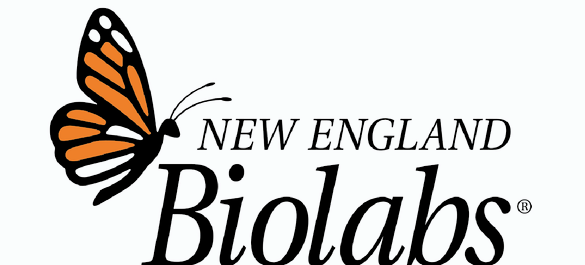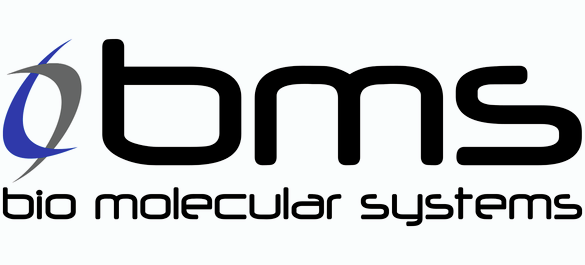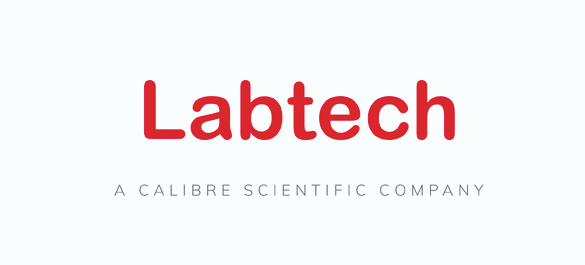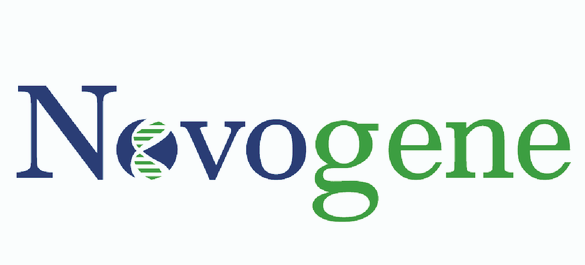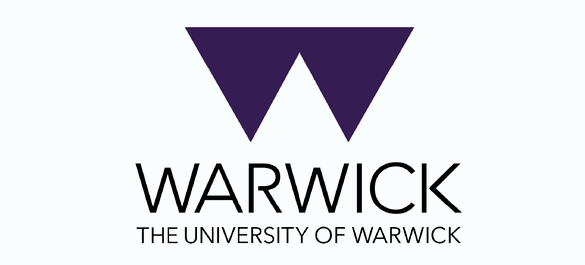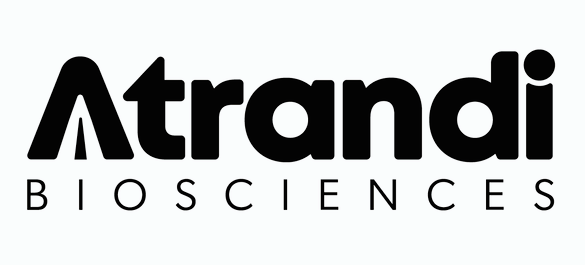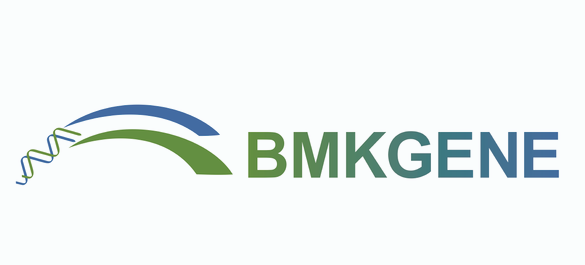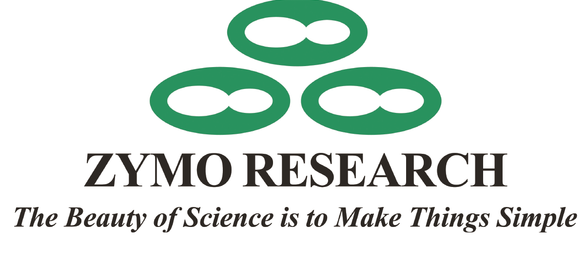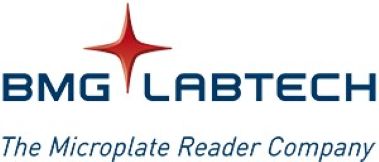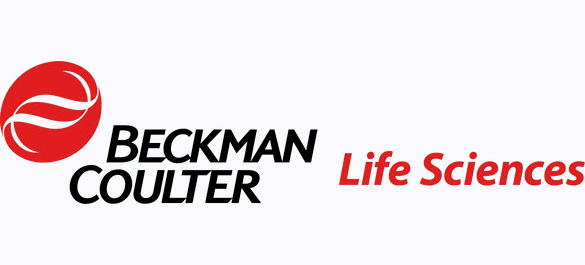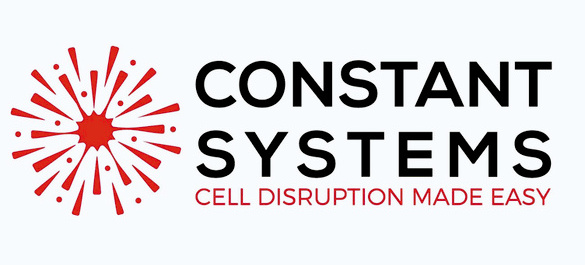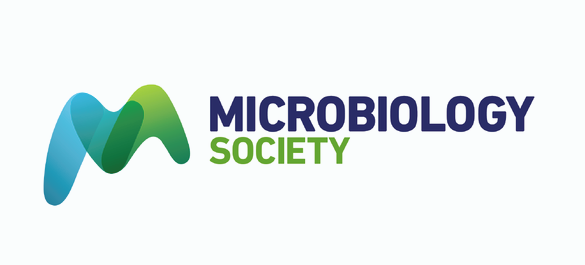
The Microbiology Society Annual Conference 2025 will take place Monday 31 March–Thursday 3 April at Liverpool ACC
The Conference takes place over four days and consists of scientific symposia, workshops, fora, professional development sessions, Prize Lectures, Hot Topics and much more.
Further information will be announced in the build-up to the meeting on our social media channels, and you can follow us on Bluesky @microbiologysociety.org and X @MicrobioSoc using the hashtag #Microbio25.
COVID-19 Mitigation statement for Microbiology Society events
As part of the preparations for Microbiology Society events due to be held in 2024, the Microbiology Society Council has further discussed the implementation of SARS-CoV-2/COVID-19 mitigations and has agreed the following:
Personal responsibility:
Attendance at any Microbiology Society event is a personal choice, and Council expects delegates to take personal responsibility for their actions to minimise the spread of SARS-CoV-2.
Ventilation:
The Microbiology Society will continue to work with venues to seek assurance that these are adequately ventilated.
Vaccination and pre-event testing:
We strongly urge all delegates to ensure they are as fully vaccinated as practicable, which we recognise will depend on their age and home country, and to test before travelling to any of our events. Delegates should not attend if they test positive for SARS-CoV-2 infection. In addition, should they wish to, delegates should feel comfortable wearing a mask in any of our venues.
Mask usage and lateral flow tests:
A limited number of masks (FFP3) and lateral flow tests will be available upon request at all Microbiology Society events should any delegates wish to use them. However, these will not be routinely supplied.
The Microbiology Society Council will continue to monitor the situation and update these mitigations as required.
Commercial publisher attendance at Annual Conference
The Microbiology Society is a charitable membership organisation and our Annual Conference is run for the benefit of our members and the wider microbiology community. This event is supported by revenue generated from our journals. We therefore request that any delegates working for commercial publishers or competing Society publishers do not engage in any promotional or commissioning work for their own journals while at the meeting. If delegates do engage in any promotional activities, they may be asked to leave the event.
Monday 31 March, Afternoon
Champions of Change: Celebrating Actions Advancing Equality, Diversity and Inclusion
-
Chair(s): Bruno Silvester Lopes (Teeside University, UK)
-
Welcome and introduction
-
Chair(s): Blanca Perez Sepulveda (University of Liverpool, UK)
-
Flash talk: Empowering Women in Microbiology: Actionable Strategies for Global Equity
-
Flash talk: Discussions on Neurodiversity and Promoting Support and Inclusion in Microbiology Research
-
Chair(s): Aisha Baba-Dikwa (Manchester Royal Infirmary, UK)
-
Mums in Science: A 17-Year Journey Supporting Women in STEM
-
Community College Active Research Equity Initiative (CCAREI): Increasing Access to Research Experiences in Historically Underrepresented Student Communities
-
Chair(s): Guerrino Macori (University College Dublin, Republic of Ireland)
-
Panel discussion
AMR – Mechanisms and Regulation (Part 1)
-
Invited talk: Transmission and transmission inhibition of AMR plasmids in E. coli and K. pneumoniae
-
Genome-Wide Analysis of Innate Susceptibility Mechanisms in Escherichia coli Under Ciprofloxacin Stress
-
Flash talk: Function of RND efflux pumps mediating new tetracycline derivatives resistance in Klebsiella pneumoniae
-
Correlating phenotypic and genotypic determinants of biocide tolerance and adaptation in Proteus mirabilis
-
Break
-
Invited talk: Investigations into the intracellular mobility of AMR genes and associated mobile genetic elements.
-
Genetic characterisation of dominant NDM-encoding plasmids in North-West London in late 2023: A Hybrid-assembly Approach
-
Flash talk: Evidence for clonal expansion and plasmid-mediated horizontal gene transfer as mechanisms for the dissemination of Extended-Spectrum Beta-Lactamases producing Escherichia coli in poultry in Harare, Zimbabwe
-
Attacking the ribosomal machinery: Identification of Ribosomal Protein Targets for Novel Antibiotic Development in Antimicrobial-Resistant Pathogens
Education and Outreach Symposium (Part 1)
-
Intro to EON and the Symposium
-
Invited talk: Education, outreach and research – the magic is in the mixture!
-
Maintaining good oral health reduces the impact of antimicrobial resistance: An outreach project in rural communities in Kenya
-
Break
-
Decolonising University Curricula with Generative AI: Reducing Barriers and Increasing Engagement in Microbiology
-
Flash talk: Building a sustainable future: how to redesign and reduce waste in the microbiology curriculum
-
Flash talk: An update on microbiology education to secondary school biology teachers
-
Interactive showcase: Immersive tools for active and creative engagement on Bacteriophages
-
Interactive showcase: Educating schools and the public about antibiotics and AMR; led by the Science, Art and Writing Trust.
-
Interactive showcase: Making it relevant, engaging, and accessible: My experience adapting massive biofilm simulations into key stage 3-4 activities aligned to the national curriculum
-
Interactive showcase: Meet the Viruses: Extended Reality for Microbiology Communication and Education
-
Interactive showcase: Implementing virtual laboratory simulations to enhance student engagement and confidence: a comparative study between undergraduate and postgraduate cohorts
-
Interactive showcase: Learner-Based Strategies for Effective Teaching of Virus Structure to Beginners in Large Classrooms
-
Interactive showcase: Drag Performance as a Methodology for Exploring Human-Microbe Relations: A Case Study of Vibrio cholerae and Escherichia coli
Genetics and Genomics Forum (Part 1)
-
Inter- and intra-patient evolution of a cystic fibrosis epidemic strain of Pseudomonas aeruginosa over the last 40 years
-
Convergence and global molecular epidemiology of Klebsiella pneumoniae plasmids harbouring the iuc3 virulence locus: a population genomic analysis
-
Genomic rearrangement of capsule operon in multi-drug resistant Escherichia coli lineage
-
Break
-
Advances in Cataloguing Bacterial Population Structure: Development of a Life Identification Number (LIN) Barcoding System for Neisseria meningitidis
-
Exploring de Bruijn Graphs as a Framework for Metagenomic Data Representation
-
How do we translate genomics into deployable tools for high-resolution pathogen surveillance in low-resource settings?
-
Epistasis analysis across bacterial pangenomes using Continuous-Time Markov Models
-
CRISPR/Cas9 gene editing facilitates antibiotic discovery in Streptomyces formicae KY5
Microbial Physiology, Metabolism and Molecular Biology Forum (Part 1)
-
Chair(s): Chris Cooper; Ellen Harrison
-
Direct single-molecule visualisation of DNA repair in bacteria within immune cells
-
RecA filament kinetics explain heterogenous SOS response induction and cell death in E. coli
-
Suppressor mutations rescuing the growth of a conditionally-lethal E. coli mutant reveal novel regulatory links between RNase P, RNase R, and Lon protease
-
The sRNA Lrs1 regulates pyochelin levels in Pseudomonas aeruginosa PAO1-L
-
Break
-
Discovery of the early biosynthetic steps of the anticancer antibiotic pleurotin
-
Can we Find the Universal Remote to Turn on Antibiotic Biosynthesis in Streptomyces bacteria
-
Cyclic di-GMP modulates virulence behaviours in multidrug resistant clinical isolates of Acinetobacter baumannii
-
Clade-Specific Phenotypes and Genetic Basis of Salmonella Enteritidis in Sub-Saharan Africa
The Role of Microbiomes in Humans, Animals and Ecosystems (Part 1)
-
Invited talk: Translating microbiome research into clinical practice
-
Bacterial microcompartments and energy metabolism drive gut colonization by Bilophila wadsworthia
-
Next Generation Probiotics – ‘Omics-based Identification of Candidate Bacteria in the Thoroughbred Foal Microbiota’ – The Bioinformatic Phase
-
Unmasking the microbial interactions which underpin successful ruminant methane mitigation via novel oxygen-releasing feed additives
-
From soil to guts: how the microbiome discourse integrates agriculture and healthcare
-
Application of Clinical Metagenomics for Accurate Detection of Community-acquired Pneumonia (CAP) in Intensive Care Patients: A Pilot Study
-
Break
-
Invited talk: Exploring dynamics of early life microbiomes
-
Longitudinal analysis of the gut microbiome in adolescent patients with anorexia nervosa: microbiome-related factors associated with clinical outcome
-
Viral and microbial contributions preceding disease onset in preterm infants: a cross NICU study in the UK
Virus Symposium: Impact of the Climate Crisis on Emerging Viruses
-
Chair(s): Ben Brennan, Clive McKimmie
-
Invited talk: How climate change influences viral emergence by altering animal behaviour and ecology
-
Mosquito saliva enhances pro-viral vascular barrier leakage through direct modulation of kinase pathways.
-
Impact of Climate-Driven Changes on the Seasonal Distribution of Avian Influenza Virus in Ireland: Cross-Species Surveillance Imperatives
-
Break
-
Invited talk: Climate sensitive virus infections at the vector-vertebrate interface
-
A role for mosquito NF-κB-mediated innate immunity in restricting orthoflavivirus replication and emergence
-
Invited talk: Global Warming-Induced Glycosylation Changes in Mosquitoes and Arboviruses: Consequences for Transmission, Infection, and Immune Evasion
Tuesday 01 April, Morning
AMR – Mechanisms and Regulation (Part 2)
-
Invited talk: Regulation of Mycobacterial cell wall metabolism contributes to antibiotic resistance and tolerance
-
Metabolism triggers phenotypic resistance in Mycobacterium tuberculosis
-
Proteomic and metabolomic responses of the Gram-positive bacteria Enterococcus faecium NCTC13169 to sub-inhibitory concentration of chloramphenicol
-
Flash talk: The need for signalling nucleotides to take MRSA to the next step: tuning high-level resistance in a superbug
-
Expanding UniProt annotation coverage for antimicrobial resistance
-
Break
-
Invited talk: Ecological and evolutionary mechanisms of antibiotic resistance emergence within patients
-
Within-patient evolution of ciprofloxacin resistance in Pseudomonas aeruginosa across a large-scale clinical trial
-
Experimental evolution of antibiotic resistance in standard and host-mimicking media
BSP/Protistology-UK: Tackling Emerging Eukaryotic Microbial Pathogen Threats
-
Understanding host cell tropism in Zoonotic malaria
-
Foodborne toxoplasmosis: investigating the role of retail meat
-
A genetic screen in Candida albicans for modulators of the neutrophil oxidative burst
-
Break
-
Awareness, drug discovery and diagnostic tools against pathogenic free-living amoebae
-
Under the Lens: Understanding drug resistance in Acanthamoeba
Education and Outreach Symposium (Part 2)
-
Invited talk: ❤ Flipping inclusive bioscience education: unlocking co-created classrooms for all ❤ (Please participate in the fun pre-activity and competition: details in the abstract)
-
Co-Creation of Accessible Microbiology Practicals to enhance Skills Gaps in Biosciences Graduates
-
‘Feeling the code’: emotional responses in diverse introductory programming courses and simple interventions to create more emotionally sensitive learning environments
-
Break
-
Making biomedical final year projects more relevant to life science employers
-
Transforming Master's Research in Microbiology: A Collaborative Approach to Enhance Student Learning and Resource Efficiency
-
Panel session
Genetics and Genomics Forum (Part 2)
-
Antimicrobial resistance mechanisms and the investigation of novel approaches to control infection by the human pathobiont Fusobacterium nucleatum
-
Going beyond resistance genes: detection of genomic co-adaption to resistance determinants
-
Pangenomic context drives mutually exclusive routes to multidrug resistance.
-
Can shared antibiotic use promote host jumps? Evidence from zoonotic Streptococcus suis in birds
-
Break
-
Bacterial and plasmid interaction networks jointly shape community stability and evolution
-
Analysis of gut microbiota dynamics within families with strain-resolved metagenomics
-
The Biofilm Master Regulator VpsR Modulates Virulence in Vibrio cholerae
-
Location, location, location – how does genomic context affect gene expression?
-
Mechanisms underpinning evolution and adaptations to inhibition of cell cycle regulator, Cdc25 phosphatase, in the yeast model organism Schizosaccharomyces pombe
Microbial Physiology, Metabolism and Molecular Biology Forum (Part 2)
-
Chair(s): Julie Morrissey; Jai Mehat; Fiona Sargison
-
How Group B streptococcus subverts intoxication by zinc and copper
-
Targeting Metal Homeostasis: The Antimicrobial Potential of Chelant X
-
Assessing the specificity of metallochaperone required for the assembly of the Neisseria nitrite reductase, AniA
-
Trace metal availability drives microbial metabolic shifts and shapes community functional diversity
-
Break
-
Molecular basis of the biogenesis of a protein organelle for ethanolamine utilization in Salmonella
-
NanZ sialic acid permeases form a diverse family of bacterial SLC17 transporters and share homology with lysosomal Sialin
-
Mixed signals: The influence of nutrient co-limitation on diatom phosphorus sensing and acquisition mechanisms
-
Harnessing epigenetic and metabolic features of Lactiplantibacillus plantarum for potential targeted immunomodulatory probiotics.
-
Exploitation of an inducible hypermutator to rapidly identify mutants that bypass LasR- and RhlR-dependent quorum sensing control of gene expression in P. aeruginosa.
The Role of Microbiomes in Humans, Animals and Ecosystems (Part 2)
-
Invited talk: Virome-bacteriome interactions in the gut microbiome; are bacteriophage and bacteria fighting or dancing?
-
Monitoring The Salivary Microbiome To Elucidate Their Functional Response To Oral Actives
-
Global Air Microbiome Encyclopedia: AI-Enhanced Metagenomics for Species-Level Analysis of Airborne Microbial Diversity
-
Limiting oral iron in weaning piglets promotes beneficial gut bacteria, immune development and favourable metabolite production without inhibiting weight gain
-
Alternative to Invasive Bronchoscopy: Validating Tracheal Aspirates for Microbiome Profiling in Intensive Care Unit Pneumonia Patients
-
Beyond Antibiotics: Examining the Effect of the Antivirulence Drug, Aurodox, on the Murine Microbiome
-
Break
-
Invited talk: Understanding the rumen microbiome to enhance methane mitigation strategies for ruminants
-
Fusobacterium is toxic for head and neck squamous cell carcinoma and its presence may determine a better prognosis
-
Balance of bile acid conjugation and hydrolysis reveals potential for gut microbiome to shape liver physiology and fat absorption
Virus Symposium: Viruses and Cancer
-
Chair(s): Matthew Reeves, Richard Stanton
-
Invited talk: Identifying novel therapeutic targets in HPV-associated cancers
-
Unveiling the LncRNA Transcriptomic Profiles between HPV-Positive and -Negative Head and Neck Tumours
-
Sp140L is a Novel Restriction Factor of Herpesvirus Infection
-
Break
-
Invited talk: Rationally designed combination therapies to enhance the efficacy of oncolytic reovirus.
-
Role of the IE1 and pp65 Proteins in Cell Transformation and Oncomodulation by Human Cytomegalovirus
-
Invited talk: Development of “precision virotherapies” for the systemic treatment of cancer.
Tuesday 01 April, Afternoon
Exploring Hidden Threats: Knowledge Expansion of Understudied Bacterial Pathogens
-
Invited talk: Burkholderia bacteria: expanding our knowledge of their taxonomy and pathogenesis using genomics
-
Creating a molecular epidemiology framework for Mycobacterium leprae
-
Helicobacter suis in UK farmed pigs and retail meat products: implications for zoonotic transmission
-
Break
-
Genetic Variants in Yaws Linked to Antibody Responses and Persistence
-
Zoonotic infection in Streptococcus suis strongly associates with specific capsule diversity
-
Exploring hidden threats: expanding our knowledge of the antimicrobial resistance transmission risks of as yet unculturable anaerobic bacteria.
-
Invited talk: Diphtheria agents revisited through the lens of genomics
From Microbes to Meals
-
Invited talk: Exploring intra-Species diversity in fungi for novel Mycoprotein production
-
Invited talk: Mycoprotein as a scalable and sustainable solution to global food challenges
-
Evaluation of the microbial risk associated with duckweed use for feed applications following cultivation on farmyard wastewater
-
Break
-
Invited talk: Reimagining Chlorella as a food and beverage ingredient suited for everyday foods
-
Invited talk: Enhancing Cultivated Meat Production: Growth Factor Purification through Microbial Fermentation
Knocking Out AMR Forum
-
Adaptive Laboratory Evolution to Induce Antibiotics Production of Streptomyces sp. SSUT88A against Drug-Resistant Bacteria
-
From Barn to Breeze: The Journey of Antimicrobial Resistance Spread Through Air!
-
Flash talk: Novel beta-lactamases and widespread beta-lactam resistance discovered in untreated wastewater
-
Searching for acquired antimicrobial resistance in poultry microbiomes
-
Impact of early life antibiotic and probiotic treatment on gut microbiome and resistome of preterm infants
-
Developing a spatially organised in-vitro cystic fibrosis polymicrobial biofilm model with digital light processing (DLP) 3D-bioprinting.
-
Break
-
Investigating the Convergence of Hypervirulence and Multi-Drug Resistance in Klebsiella pneumoniae in Sudan
-
Flash talk: Understanding chromosomal and plasmid interactions of antibiotic resistance genes in E. coli
-
Clinical and veterinary isolates of the Klebsiella planticola and terrigena complexes contribute to the global burden of β-lactamases (RECORDED)
-
Genomic drivers of increasing intestinal colonisation with extended-spectrum beta-lactamase (ESBL)-producing Escherichia coli in rural southern Malawi
-
Flash talk: Resistant and Biofilm Forming Escherichia coli from Flooded and Non-Flooded Agricultural Soils
The Fungus Among Us: Confronting Antimicrobial Resistance in Fungi (Part 1)
-
Invited talk: Exploring the activity of hydrogen sulphide against dermatophytes
-
Invited talk: Candida albicans Utilises Methaemoglobin to Build Ultra-Drug Resistant Polymicrobial Biofilms
-
Universal PCR assays to detect Candida FKS and ERG11 mutations
-
Understanding the biological response of the fungi Candida albicans to a silica dioxide nanoparticle coating
-
Break
-
Invited talk: Searching for the source: how environmental fungi become clinically resistant
-
Prosopis juliflora-Derived Copper Nanoparticles Combating Against Candida albicans Infections
-
Impact of fungi on the effectiveness of antimicrobials against Pseudomonas aeruginosa in polymicrobial biofilms
Urogenital Microbes in Health and Disease (Part 1)
-
Invited talk: Harnessing Vaginal Microbiome Science for Women’s Health: Emerging Pathogens and Their Role in HPV-Driven Cervical Cancer
-
Development of a human cell-based microphysiological system (MPS) to study vaginal mycobiome-host interactions.
-
Multi-omic analysis of the vaginal microenvironment reveals mechanisms of vulvovaginal and sexual health symptoms in women with benign gynaecological conditions
-
Flash talk: L. iners and P. bivia have a significant effect on HPV E6E7 oncogene expression in NIKS in-vitro cell model
-
Flash talk: In Vitro Modelling of Polymicrobial Infections in the Catheterised Urinary Tract: Biofilm Community Dynamics and the effects of antibioticsciprofloxacin on polymicrobial communities
-
Break
-
Invited talk: Immunoregulation in the female genital tract
-
Teaching an old drug new tricks: exploring drug repurposing to combat chronic vaginal infections.
-
Drivers of acquisition of antimicrobial resistance in urinary tract infections
Virus Forum: Antiviral Innate Immunity
-
Assessing the anti-influenza activity of equine ISGs
-
Molecular determinants of Influenza A virus escape from human BTN3A3 restriction
-
Alternative splicing diversifies the antiviral activity of OAS proteins
-
Species differences in IFIT sequence, interaction and function
-
Interleukin-1β induces ISG expression and restricts MPXV via IFITMs
-
Break
-
Utilising spatial proteomics to understand the cellular response to IFN
-
Functional Variation in Antiviral Activity Between Mammalian Type III Interferons
-
Non-CDN STING agonists are resistant to poxin antagonism and potently restrict MPXV infection
-
Vitamin D increases host resistance to arbovirus infection
-
The antiviral functions of avian orthologues of viperin against IAV
-
Exogenous DNA and not viral genomes triggers IFN production during in vitro infection with Human cytomegalovirus.
Virus Forum: Biochemistry of Viral Infection
-
Virus Forum: Biochemistry of Infection
-
There is more to the Nucleocapsid gene of coronaviruses that meets the eye...
-
Biochemical characterisation of genome packaging interactions in coronaviruses.
-
Evaluating changes in the spike S2′ cleavage site of the avian gammacoronavirus infectious bronchitis virus on virus tropism and protease usage.
-
Mutation of ICP34.5 in HSV1 reveals divergent phenotypes across common lab strains
-
Proteolytic cleavage orchestrates the formation and function of the astrovirus replication complex
-
Understanding enterovirus capsid uncoating by the identification and characterisation of a highly conserved capsid motif
-
Foot-and-mouth disease virus infection induces the assembly of biocondensates
-
HCMV microprotein UL2 indirectly affects formation of viral biomolecular condensate compartments.
-
Assessing the internal genes of H5N1 in bovine cells
-
Unique structural and compositional features of Influenza A filaments
Virus Forum: Pathogens & Antivirals
-
The role of fibroblasts in the Tumour Microenvironment of Epstein-Barr Virus positive Nasopharyngeal carcinomas
-
Screening FDA-Approved Drugs with Recombinant Cedar Virus as a CL-2 Surrogate to Identify Potential Nipah Virus Antivirals
-
Use of a human airway epithelium model to assess zoonotic spillover risk of H5N1 avian influenza viruses
-
SARS-CoV-2 entry into macrophages is via an ACE2-independent mechanism and does not result in productive infection
-
Break
-
CHARACTERISING THE ROLE OF SOMATOSTATIN RECEPTOR 5 IN HPV-DRIVEN CERVICAL CANCER
-
Phage Therapy for Antibiotic-Resistant Pseudomonas aeruginosa: Overcoming Manufacturing Barriers in the UK
-
Human ACE2 transgenic pigs are susceptible to SARS-CoV-2 and develop COVID-19-like disease.
-
Characterisation of Lactobacillus plantarum as a therapeutic and preventative strategy for RSV-disease.
-
MPXV Infects Human PBMCs in a Type I Interferon-Sensitive Manner
-
Harnessing the antiviral potential of Nigella sativa volatile compounds against enveloped viruses.
Virus Forum: RNA in Viral Replication
-
Direct expression from incoming retroviral RNA genomes
-
Investigating the role of the non-structural protein NSs of Oropouche virus in modulating RNA polymerase II function
-
The segment specific impact of CpG-enrichment on influenza A virus fitness
-
Elucidating Influenza A packaging interactions in the context of infection
-
Regulatory role of the influenza A virus NEP in viral RNA synthesis
-
Break
-
Transcriptomic analysis of human airway cultures singly- and co-infected with SARS-CoV-2, Influenza A Virus or Respiratory Syncytial Virus
-
Regulation of polyadenylation in coronavirus transcripts
-
Dynamics of SARS-CoV-2 RNA-dependent RNA polymerase association with the viral genome
-
Characterisation of the s2m RNA structure in the replication and pathogenicity of Avian Coronavirus’
-
Spatiotemporal single-cell RNA sequencing of chicken trachea reveals differences in host immune responses against pathogenic and attenuated infectious bronchitis virus (IBV).
-
HSV-1 VHS endoribonuclease mediates host mRNA degradation through an XRN1-independent mechanism
Wednesday 02 April, Morning
Beyond the Lab – Turning Your Research Into Reality (Part 1)
-
Introduction
-
Chair(s): Geertje van Keulen
-
Update from the Department of Science, Innovation and Technology
-
Building partnerships between industry and researchers to tackle the ‘problems worth solving by us’
-
Q&A
-
Break
-
Chair(s): Monika Gostic
-
Harnessing the Microbiome: From Academic Insight to Impact
-
Regulating genetically modified microorganisms for environmental benefit
-
Biofilm Alliance: A Network for Regulatory Sciences, Academic Research, and Industry Collaboration
-
Q&A
Infection Forum (Part 1)
-
Infection Science Awardee: The spatio-temporal localisation of a pan-Mucorales specific antigen: a promising immunohistochemistry target and potential biomarker for mucormycosis
-
Infection Science Awardee: Last line treatment options for Carbapenemase-producing Enterobacterales: a call for harmonization of cefiderocol breakpoints
-
Infection Science Awardee: Pre-analytical sampling and processing of tongue swabs for Mycobacterium tuberculosis complex (Mtbc) impacts diagnostic yield
-
Break
-
Unveiling the Complexities of Microbial Interactions in the Cystic Fibrosis Airways in Response to Therapeutic Interventions
-
Proteomic dissection of Aspergillus fumigatus – host interactions using the ex-vivo pig lung model
-
Flash talk: Phage therapy for the treatment of Non-Cystic Fibrosis Bronchiectasis in a Norfolk Patient Population: Insights from the BronchoPhage Study.
-
Spatially resolved host-pathogen interactions in chronic lung disease
-
Flash talk: Three novel effective vaccine antigens protect against Klebsiella pneumoniae infection
-
A natural product cocktail derived from an “ancientbiotic” with enhanced activity against Staphylococcus aureus and Pseudomonas aeruginosa biofilms
The Fungus Among Us: Confronting Antimicrobial Resistance in Fungi (Part 2)
-
Invited talk: Rising Heat, Rising Threat: How Climate Change Fuels Fungal Pathogens
-
Diketopiperazines as scaffolds for anti-Candida drugs
-
Cecacins, a novel group of chicken ceca microbiome derived peptides for treatment of multidrug resistant Nakaseomyces glabrata
-
Break
-
Invited talk: Azole Resistance in the Apple Scab Pathogen Controlled by Dose-Dependent Genetic Mechanisms
The Potential of AI for Microbiology
-
Invited talk: Machine learning versus statistical inference in microbial genomics
-
Development of AI-assisted pipelines to streamline functional annotation of pathogen proteins from scientific literature in UniProt
-
Invited talk: Genomic traits and social determinants of health drive bacterial antimicrobial resistance: current trends and projections to 2050 revealed by machine learning
-
Break
-
Invited talk: Machine learning in metagenomics for precision medicine and personalized nutrition
-
Machine learning approaches to improve antibiotic selection for urinary tract infection in renal transplant patients
-
Evaluation of Large Language Models for the reassembly of proteins from peptides
-
Panel Discussion: Prof Cesar de La Fuente, Prof Daniel Wilson, Prof Tania Dottorini and Prof Nicola Segata
Urogenital Microbes in Health and Disease (Part 2)
-
Invited talk: A bird’s eye view on Trichomonas-microbiota interactions and mucosal inflammation
-
Macrolide resistance in Chlamydia trachomatis, Mycoplasma genitalium and Treponema pallidum in the United Kingdom: Genotypic Prevalence Study
-
Origin and evolution of plasmid-mediated beta-lactam resistance in Neisseria gonorrhoeae
-
Flash talk: Evaluation of Phytic Acid as a Novel Antimicrobial and Inhibitor of InVitro Urinary Catheter blockage
-
Flash talk: To pee or not to pee? The use of artificial urine media to model bacterial growth and biofilm formation in simulated urinary tract infection.
-
Flash talk: Exploring the Antibacterial and Antioxidant Potential of Prosopisjuliflora-Derived Copper Nanoparticles Against Staphylococcus aureus in Urinary tract infections
-
Break
-
Invited talk: Modulation of the vaginal microbiome as a therapeutic target for preterm birth prevention
-
Time to reconsider how we study the phenotypes and metabolism of uropathogenic Enterobacteriaceae?
-
Activity of urinary extracellular vesicles against biofilm-associated urinary tract infections.
Virus Symposium: Into the Virosphere: Exploring the Full Diversity of Virology (Part 1)
-
Invited talk: A Thirty Thousand Year Perspective on Human DNA Virus Evolution
-
Bat-specific adaptations in interferon signaling and GBP1 contribute to enhanced viral tolerance
-
Streptococcus suis as a Model for the Phage-Based Biocontrol Agents
-
Break
-
Exploring genetic innovation throughout the evolutionary history of RNA viruses
-
Viro3D: species-centred database of viral protein structures
-
The evolutionary paradox of host-virus interactions
Wednesday 02 April, Afternoon
Environmental, Applied and Industrial Microbiology Forum (Part 1)
-
Chair(s): Bruno Francesco Rodrigues de Oliveira; Kathleen Dunbar
-
From Sewers to Seas: microplastics as vectors for antimicrobial resistance from hospital wastewater to marine environments
-
The role of environmental amoebae in the survival of bacteria and the spread of AMR
-
Novel environmentally conscious antimicrobial smart release coatings for the reduction of healthcare-associated infections and antibiotic usage dependence.
-
Adaptions in an industrial Streptomyces lineage lead to increased antibiotic yield.
-
High-throughput enrichment and sequencing-based analysis of microplastic-associated microbial communities for the identification of plastic-degrading enzymes
-
Break
-
Developing a commercial bacteriocin-based treatment for protecting potatoes against Blackleg disease and soft rot
-
Engineering myxobacterial super-predators to fight crop disease
-
Designing sustainable co-cultures for biomanufacturing: Exploring the effects of spatial configuration on metabolism and interactions in a synthetic microbial consortium using quantitative proteomics
-
Balancing the scales: assessing the impact of irrigation and pathogen burden on potato blackleg disease and soil microbial communities
Infection Forum (Part 2)
-
The interaction of L. monocytogenes with human placental macrophages changes as gestation proceeds.
-
Cross-scale infection imaging: visualising infection and pathobiology from single cells to whole organs
-
Signalling and Warfare in a Polymicrobial Community
-
The V-ATPase as a sensor of pathogen-associated pH neutralisation
-
Break
-
Rapid genetic adaptation to harsh acidic conditions by a clinical isolate of Listeria monocytogenes reveals selection on non-canonical start codons for elevated SigB activity.
-
Flash talk: Development of Rapid, High-Resolution Diagnostic Models for Field Deployment: A Cholera Case Study
-
Adaptation of Campylobacter to Sodium Chloride Alters Phenotypes Associated with Human Disease
-
Flash talk: Genomic and phenotypic changes associated with the acquisition of fluoroquinolone resistance in Campylobacter jejuni
-
Toxic Trickery: Antitoxin-induced auto-phosphorylation blocks bacterial toxin activity
-
Flash talk: Investigating the interplay between NKG2D ligands, SARS-CoV-2 infected epithelial cells and gamma delta T cells
-
Dissecting the crosstalk between stress granules and yellow fever virus infection
Microbial Warfare: Conflicts Between Species, Strains and Mobile Genetic Elements (Part 1)
-
Chair(s): Rebecca Corrigan; William Smith
-
Invited talk: “All the World’s a Phage” - Exploring phage-host interactions
-
To kill or not to kill: deciphering the mechanisms promoting activity of a facultative algicidal marine bacterium.
-
A good defence is a bad offense: CRISPR-Cas in inter-plasmid competition
-
Phage vs. Phage: When Pseudomonas’ own prophages step up the defenсe
-
Break
-
Invited talk: Discovery and characterisation of toxin-antitoxins and other phage defence systems
-
Flash talk: How do interactions between plasmids and transposons affect resistance gene spread?
-
Flash talk: Pangenomics of Staphylococcus aureus: insights into intra-species gene flow and the evolution of lineages
-
Flash talk: SXT/R391 Integrative and Conjugative Elements (ICEs) and Their Relationship with Proteus mirabilis Hosts
-
Flash talk: It's Lyse To Meet You: Introducing the Pseudomonas 43A Tailocin to Escherichia coli O157:H7
-
Flash talk: Characterising the role and evolution of temperate bacteriophages in chronic respiratory infections of Pseudomonas aeruginosa in Cystic Fibrosis (CF) patients using their first isolate.
Virus Forum: Antiviral Adaptive Immunity
-
Structural and immunological basis of cross-herpesvirus activity of a new humoral response induced by human cytomegalovirus vaccination
-
Whole Virion Proteomics of HCMV Reveals that gpUL141 is a Virion Component that Modulates Envelope Glycoprotein Composition to Protect Against Humoral Immunity
-
Controlling HCMV Through NK-dependent ADCC-inducing Immunotherapies
-
Developing Nanobodies as Pan-SARS-CoV-2 Therapeutics
-
Assessing SARS-CoV-2 viral escape under immune selection from neutralising antibodies and polyclonal serum.
-
Break
-
Understanding rotavirus vaccine efficacy by analysis of antibody responses in mice
-
The Impact of Viral Genomic Diversity on T cell Responses to Enteric Human Adenoviruses
-
A multi-dimensional model of HIV-1 latency toward assessment of effectiveness of antigen presentation and curative therapies
-
Live-attenuated SARS-CoV-2 vaccine viruses as a lower containment model for coronavirus biology
-
Evaluation of bioinformatically designed glycoproteins to aid the development of a pan-lyssavirus vaccine
-
Changes in population immunity reduce the likelihood of emergence of zoonotic coronaviruses
Virus Forum: Systems Virology
-
Identification of novel necroptosis inhibitors encoded by Human Cytomegalovirus
-
Latent human cytomegalovirus infection targets the haematopoietic master regulator GATA2.
-
Characterisation of a novel human cytomegalovirus restriction factor and its viral evasion
-
Exploring the Temporal Dynamics of Herpes Simplex Virus-1 Infection in iPSC-Derived Human Neurones: A Proteomic and Transcriptomic Approach to Identify Novel Host-Pathogen Interactions.
-
Single-cell analysis of the effects of cellular dormancy on the efficacy of bacteriophages
-
Break
-
Genome-Scale CRISPR-Cas9 Knockout Screening in Avian Cells to Identify Host Factors Essential for Influenza Virus Infection
-
Elucidating the interactome of SARS-CoV-2 proteins with interface resolution
-
Porcine genome-wide CRISPR/Cas9 screen identifies host dependency factors for Influenza A virus
-
Investigation of TRS usage in alpha and gamma coronaviruses by long read direct RNA sequencing
-
Identification of the Cellular Interactome of Seasonal and Highly Pathogenic Human Coronavirus Nucleocapsid Proteins
-
Combining dynamic residue networks and machine learning to define the mutational landscape of SARS-CoV-2 Mpro: new tools for improved drug design
Virus Forum: The Virospshere
-
Characterizing Retroviral Integrations and Their Impact on Koala Populations: Implications for Health and Conservation
-
Discovering patterns in the genome of RNA viruses that drive evolution and regulate replication
-
An increasing threat: sandfly bites enhance susceptibility to an arthropod-borne bunyavirales infection in a mammalian host
-
Investigating the evolutionary plasticity of orthomyxovirus splicing using influenza A virus segment 7 as a model system
-
Characterising Mutational Pressures Exerted by Nucleoside Analogues on SARS-CoV-2 Evolution.
-
Break
-
Investigating the viral characteristics of virulent systemic feline caliciviruses
-
Interactions of IAV and RSV during coinfection in vitro and formation of structures resembling hybrid viral particles
-
Phenotypic evolution of SARS-CoV-2 spike during the COVID-19 pandemic
-
Investigating the evolution of seasonal human coronaviruses and their application to future evolutionary directions of SARS-CoV-2
-
Exploring the glycoprotein frontier: diversity in sarbecovirus spike protein functionality and implications in spillover
-
How unique an event might the bovine incursion of H5N1 Clade 2.3.4.4b B3.13 influenza A genotype virus be?
Virus Forum: Virus: Host Interactions
-
Influenza A viruses induce tunnelling nanotubes by triggering cell death
-
Co-option of mitochondrial nucleic acid sensing pathways by HSV-1 UL12.5 for reactivation from latent Infection
-
STAT5: A Potential Mediator of HCMV Reactivation in Primary Dendritic Cells
-
Host cell cycle and ribosomal resources drive phage infection outcomes
-
A complex of three HSV-1 proteins antagonises cellular antiviral mechanisms by recruiting a cellular E3 ubiquitin ligase
-
Break
-
FBXO8, a novel E3 ubiquitin ligase that supresses inflammatory and antiviral responses
-
Human cytomegalovirus interferes with the BTK-DDX41-STING signaling axis during lytic infection
-
Deciphering the molecular mechanisms behind BstA anti-phage activity
-
Investigating the contribution of the AURKA-FBXL7 axis on HPV18 oncogenic development
-
IAV M2 proton channel activity targets autophagy protein LC3 to Rab11-positive endosomes.
-
Characterising the subcellular transport of influenza A virus vRNPs and virion formation via in situ cryoET
Thursday 03 April, Morning
Careers Session: Transitions: Career Paths Outside of Academia
-
Chair(s): Rebecca McHugh; Natasha Turner
-
Navigating the transition to different Career Destinations as a Microbiologist
-
From Academia to Industry: My Journey in Science and Innovation
-
There and almost back again- a microbiologist's tale
-
Break
-
From the lab to law: a career in science and intellectual property
-
Pivoting from Pipettes: A Scientist’s Move to Sales
-
Q&A Session
Enteric Bacteria: Biology, Diversity and Ecology
-
Invited talk: The wonderful world of Escherichia coli
-
Needle Amnesty: Aurodox inhibits the Type III Secretion System of multiple Gram-negative organisms
-
Genomic epidemiology and phenotypic characterisation of Salmonella enterica serovar Panama in Victoria, Australia
-
Exploration of Bacterial Evolution and Dynamics in a Natural Two-host Setting
-
Break
-
Modulation of a carcinogenic bacterial genotoxin in E. coli bowel isolates
-
Culturing of previously ‘unculturable’ rumen bacteria using culturomics with dilution to extinction and direct plating methods on diverse media
-
Genomic Insights of Scottish E. coli Source Attribution and Antimicrobial Resistance
-
Flash talk: Hypervirulent Klebsiella pneumoniae coordinates expression of distinct siderophores in response to different environment cues
-
Flash talk: Phage-plasmid borne methionine tRNA ligase mediates epidemiologically relevant antimicrobial persistence
-
Flash talk: Molecular ecology of bacteria in the Rivers Deben and Itchen; from citizen science to metagenomes.
Environmental, Applied and Industrial Microbiology Forum (Part 2)
-
Chair(s): Luke Shipley; Damien Brady
-
Harnessing Native Metabolism in Pseudomonas umsongensis GO16 for the Production of Plastic Alternatives
-
Engineering algal phycosphere for bio-remediation, bio-polymer production, and novel material development.
-
Understanding Bacillus spore interactions on textiles for innovative cleaning technologies
-
Break
-
The Hidden Potential: Microbial Strategies for Insoluble Phosphate Utilisation
-
Polystyrene nanoparticles induce biofilm formation in Pseudomonas aeruginosa
-
Harnessing Horizontal Gene Transfer for Bioremediation: Functionalized pQBR57 plasmid drives terephthalic acid degradation, conjugation, and plasmid stability in soil microbial communities
-
Investigating antimicrobial stress response in Escherichia coli induced by high-frequency ultrasound
-
Atmospheric nitrogen fixation and restricted mobility of arsenic on plant root-associated diazotrophic biofilm enhance plant anatomy
-
Biocoatings: Confining genetically modified Escherichia coli for the production of hydrogen
Microbial Warfare: Conflicts Between Species, Strains and Mobile Genetic Elements (Part 2)
-
Chair(s): João Botelho; David Sünderhauf
-
Invited talk: The contribution of interactions between mobile elements to the bacterial pan-genome
-
Microbes evolve individual and collective defences against common T6SS toxins
-
Multi-conflict islands are a widespread trend within Serratia spp
-
The mechanism and evolution of the Phage Growth Limitation (Pgl) system
-
Break
-
Invited talk: Conflicts between plasmids and with defence systems drive the evolution of AMR plasmid transmission
-
Gene Transfer Agents: Domesticated Viruses as Vehicles of Horizontal Gene Transfer
-
Genomic analyses to infer defence system interactions among global Pseudomonas aeruginosa populations
Sex, HGT and Symbioses: Genetic Recombination Across the Microbial Eukaryotic Tree of Life
-
Chair(s): Maria Domingo Sananes; Tabea Elsener
-
Rethinking eukaryotic genome innovation: New perspectives on the prevalence, integration and implications of horizontally transferred genes
-
The impact of horizontal gene transfer in the acquisition of plastids, the emergent model Rapaza viridis
-
Offered talk: Chromosome divergence and hybrid sterility in budding yeasts
-
Break
-
Genetic screens in a malaria parasite provide a window on sexual reproduction in a divergent eukaryote
-
Some molecular perspectives on a nascent endosymbiosis
Tackling AMR through multidisciplinary and cross-sector collaboration
-
Chair(s): Peter Cotgreave, Microbiology Society
-
Futures AMR Network: Building the next generation of AMR leaders.
-
Evaluation of Climate Change Impacts on AMR Using a Planetary Health Framework (CLIMAR)
-
IMPACT AMR: a transdisciplinary network.
-
Transdisciplinary Antimicrobial Resistance Genomics Network (TARGetAMR)
-
The AMAST Network – A powerful and informed new voice in the One Health approach to antimicrobial resistance
-
ARREST-AMR: Advancing One Health Diagnostics to Combat Antimicrobial Resistance
-
Fungal One Health and Antimicrobial Resistance (F1AMR)
-
Break
-
Chair(s): Emily Hugo-Webb, Microbiology Society
-
Coordinated surveillance of foodborne pathogens and antimicrobial resistance: the PATH-SAFE pilot
-
Surveillance of Antimicrobial Resistance in clinical infections from companion animals (VetCLIN AMR)
-
AMR education: One Health approach
-
Networking
Virus Symposium: Into the Virosphere: Exploring the Full Diversity of Virology (Part 2)
-
Tomato brown rugose fruit virus: The other global virus pandemic…
-
The Good, the Bad and the Ugly: Expanding the Virosphere with Viromics
-
Attenuation of the 2022 global monkeypox virus relative to its endemic clade IIb ancestor
-
Evidence for early and ongoing adaptation of avian H5N1 in US cattle.
-
Nucleocytoviricota viral factories are transient organelles made by liquid-liquid phase separation
Monday 31 March, Afternoon
-
Refreshments & Exhibition (Hall 2)
-
Welcome and introduction
-
Flash talk: Empowering Women in Microbiology: Actionable Strategies for Global Equity
-
Flash talk: Discussions on Neurodiversity and Promoting Support and Inclusion in Microbiology Research
-
Mums in Science: A 17-Year Journey Supporting Women in STEM
-
Community College Active Research Equity Initiative (CCAREI): Increasing Access to Research Experiences in Historically Underrepresented Student Communities
-
Panel discussion
-
President's Address
-
EDI Prize Lecture: If Not Now, When? Building a Community to Empower Black Microbiologists
-
EDI Prize Lecture: Embedding Equality, Diversity and Inclusion into Biosciences Undergraduate Curricula through Staff-Student Partnerships
-
Invited talk: Transmission and transmission inhibition of AMR plasmids in E. coli and K. pneumoniae
-
Intro to EON and the Symposium
-
Inter- and intra-patient evolution of a cystic fibrosis epidemic strain of Pseudomonas aeruginosa over the last 40 years
-
Direct single-molecule visualisation of DNA repair in bacteria within immune cells
-
Invited talk: Translating microbiome research into clinical practice
-
Invited talk: How climate change influences viral emergence by altering animal behaviour and ecology
-
Invited talk: Education, outreach and research – the magic is in the mixture!
-
Convergence and global molecular epidemiology of Klebsiella pneumoniae plasmids harbouring the iuc3 virulence locus: a population genomic analysis
-
RecA filament kinetics explain heterogenous SOS response induction and cell death in E. coli
-
Genome-Wide Analysis of Innate Susceptibility Mechanisms in Escherichia coli Under Ciprofloxacin Stress
-
Genomic rearrangement of capsule operon in multi-drug resistant Escherichia coli lineage
-
Suppressor mutations rescuing the growth of a conditionally-lethal E. coli mutant reveal novel regulatory links between RNase P, RNase R, and Lon protease
-
Bacterial microcompartments and energy metabolism drive gut colonization by Bilophila wadsworthia
-
Mosquito saliva enhances pro-viral vascular barrier leakage through direct modulation of kinase pathways.
-
Flash talk: Function of RND efflux pumps mediating new tetracycline derivatives resistance in Klebsiella pneumoniae
-
Maintaining good oral health reduces the impact of antimicrobial resistance: An outreach project in rural communities in Kenya
-
Break
-
The sRNA Lrs1 regulates pyochelin levels in Pseudomonas aeruginosa PAO1-L
-
Next Generation Probiotics – ‘Omics-based Identification of Candidate Bacteria in the Thoroughbred Foal Microbiota’ – The Bioinformatic Phase
-
Impact of Climate-Driven Changes on the Seasonal Distribution of Avian Influenza Virus in Ireland: Cross-Species Surveillance Imperatives
-
Correlating phenotypic and genotypic determinants of biocide tolerance and adaptation in Proteus mirabilis
-
Break
-
Break
-
Unmasking the microbial interactions which underpin successful ruminant methane mitigation via novel oxygen-releasing feed additives
-
Break
-
Break
-
From soil to guts: how the microbiome discourse integrates agriculture and healthcare
-
Application of Clinical Metagenomics for Accurate Detection of Community-acquired Pneumonia (CAP) in Intensive Care Patients: A Pilot Study
-
Decolonising University Curricula with Generative AI: Reducing Barriers and Increasing Engagement in Microbiology
-
Advances in Cataloguing Bacterial Population Structure: Development of a Life Identification Number (LIN) Barcoding System for Neisseria meningitidis
-
Break
-
Invited talk: Climate sensitive virus infections at the vector-vertebrate interface
-
Invited talk: Investigations into the intracellular mobility of AMR genes and associated mobile genetic elements.
-
Flash talk: Building a sustainable future: how to redesign and reduce waste in the microbiology curriculum
-
Exploring de Bruijn Graphs as a Framework for Metagenomic Data Representation
-
Discovery of the early biosynthetic steps of the anticancer antibiotic pleurotin
-
Invited talk: Exploring dynamics of early life microbiomes
-
Flash talk: An update on microbiology education to secondary school biology teachers
-
Interactive showcase: Immersive tools for active and creative engagement on Bacteriophages
-
Interactive showcase: Educating schools and the public about antibiotics and AMR; led by the Science, Art and Writing Trust.
-
Interactive showcase: Making it relevant, engaging, and accessible: My experience adapting massive biofilm simulations into key stage 3-4 activities aligned to the national curriculum
-
Interactive showcase: Meet the Viruses: Extended Reality for Microbiology Communication and Education
-
Interactive showcase: Implementing virtual laboratory simulations to enhance student engagement and confidence: a comparative study between undergraduate and postgraduate cohorts
-
Interactive showcase: Learner-Based Strategies for Effective Teaching of Virus Structure to Beginners in Large Classrooms
-
Interactive showcase: Drag Performance as a Methodology for Exploring Human-Microbe Relations: A Case Study of Vibrio cholerae and Escherichia coli
-
How do we translate genomics into deployable tools for high-resolution pathogen surveillance in low-resource settings?
-
Can we Find the Universal Remote to Turn on Antibiotic Biosynthesis in Streptomyces bacteria
-
A role for mosquito NF-κB-mediated innate immunity in restricting orthoflavivirus replication and emergence
-
Genetic characterisation of dominant NDM-encoding plasmids in North-West London in late 2023: A Hybrid-assembly Approach
-
Epistasis analysis across bacterial pangenomes using Continuous-Time Markov Models
-
Cyclic di-GMP modulates virulence behaviours in multidrug resistant clinical isolates of Acinetobacter baumannii
-
Longitudinal analysis of the gut microbiome in adolescent patients with anorexia nervosa: microbiome-related factors associated with clinical outcome
-
Invited talk: Global Warming-Induced Glycosylation Changes in Mosquitoes and Arboviruses: Consequences for Transmission, Infection, and Immune Evasion
-
Flash talk: Evidence for clonal expansion and plasmid-mediated horizontal gene transfer as mechanisms for the dissemination of Extended-Spectrum Beta-Lactamases producing Escherichia coli in poultry in Harare, Zimbabwe
-
Attacking the ribosomal machinery: Identification of Ribosomal Protein Targets for Novel Antibiotic Development in Antimicrobial-Resistant Pathogens
-
CRISPR/Cas9 gene editing facilitates antibiotic discovery in Streptomyces formicae KY5
-
Clade-Specific Phenotypes and Genetic Basis of Salmonella Enteritidis in Sub-Saharan Africa
-
Viral and microbial contributions preceding disease onset in preterm infants: a cross NICU study in the UK
-
Refreshments & Exhibition (Hall 2)
-
Champions' Showcase: World AMR Awareness Week 2024
-
Get Involved drop-in: Black Microbiologists Association
-
Industry sponsored session: High-Throughput Single-Microbe Genomics Enabled by Semi-Permeable Capsules - Sponsored by ATRANDI BIOSCIENCES
-
Prize Medal Prize Lecture: Dynamics and Repeatability in a Long-Term Experiment with Bacteria
-
Reception (Hall 2)
Tuesday 01 April, Morning
-
Registration (Galleria)
-
Peter Wildy Prize Lecture: Guardians of the Gut: Bringing Microbiome Science to Life through Public Engagement
-
Get Involved drop-in: Shadowing Scheme
-
Refreshments & Exhibition (Hall 2)
-
Invited talk: Regulation of Mycobacterial cell wall metabolism contributes to antibiotic resistance and tolerance
-
Understanding host cell tropism in Zoonotic malaria
-
Invited talk: ❤ Flipping inclusive bioscience education: unlocking co-created classrooms for all ❤ (Please participate in the fun pre-activity and competition: details in the abstract)
-
Antimicrobial resistance mechanisms and the investigation of novel approaches to control infection by the human pathobiont Fusobacterium nucleatum
-
How Group B streptococcus subverts intoxication by zinc and copper
-
Invited talk: Virome-bacteriome interactions in the gut microbiome; are bacteriophage and bacteria fighting or dancing?
-
Invited talk: Identifying novel therapeutic targets in HPV-associated cancers
-
Going beyond resistance genes: detection of genomic co-adaption to resistance determinants
-
Targeting Metal Homeostasis: The Antimicrobial Potential of Chelant X
-
Foodborne toxoplasmosis: investigating the role of retail meat
-
Metabolism triggers phenotypic resistance in Mycobacterium tuberculosis
-
Co-Creation of Accessible Microbiology Practicals to enhance Skills Gaps in Biosciences Graduates
-
Pangenomic context drives mutually exclusive routes to multidrug resistance.
-
Assessing the specificity of metallochaperone required for the assembly of the Neisseria nitrite reductase, AniA
-
Monitoring The Salivary Microbiome To Elucidate Their Functional Response To Oral Actives
-
Unveiling the LncRNA Transcriptomic Profiles between HPV-Positive and -Negative Head and Neck Tumours
-
Proteomic and metabolomic responses of the Gram-positive bacteria Enterococcus faecium NCTC13169 to sub-inhibitory concentration of chloramphenicol
-
‘Feeling the code’: emotional responses in diverse introductory programming courses and simple interventions to create more emotionally sensitive learning environments
-
Can shared antibiotic use promote host jumps? Evidence from zoonotic Streptococcus suis in birds
-
Trace metal availability drives microbial metabolic shifts and shapes community functional diversity
-
Global Air Microbiome Encyclopedia: AI-Enhanced Metagenomics for Species-Level Analysis of Airborne Microbial Diversity
-
Sp140L is a Novel Restriction Factor of Herpesvirus Infection
-
A genetic screen in Candida albicans for modulators of the neutrophil oxidative burst
-
Flash talk: The need for signalling nucleotides to take MRSA to the next step: tuning high-level resistance in a superbug
-
Break
-
Break
-
Break
-
Limiting oral iron in weaning piglets promotes beneficial gut bacteria, immune development and favourable metabolite production without inhibiting weight gain
-
Break
-
Expanding UniProt annotation coverage for antimicrobial resistance
-
Break
-
Alternative to Invasive Bronchoscopy: Validating Tracheal Aspirates for Microbiome Profiling in Intensive Care Unit Pneumonia Patients
-
Beyond Antibiotics: Examining the Effect of the Antivirulence Drug, Aurodox, on the Murine Microbiome
-
Break
-
Making biomedical final year projects more relevant to life science employers
-
Bacterial and plasmid interaction networks jointly shape community stability and evolution
-
Molecular basis of the biogenesis of a protein organelle for ethanolamine utilization in Salmonella
-
Invited talk: Rationally designed combination therapies to enhance the efficacy of oncolytic reovirus.
-
Break
-
Awareness, drug discovery and diagnostic tools against pathogenic free-living amoebae
-
Invited talk: Ecological and evolutionary mechanisms of antibiotic resistance emergence within patients
-
Transforming Master's Research in Microbiology: A Collaborative Approach to Enhance Student Learning and Resource Efficiency
-
Analysis of gut microbiota dynamics within families with strain-resolved metagenomics
-
NanZ sialic acid permeases form a diverse family of bacterial SLC17 transporters and share homology with lysosomal Sialin
-
Invited talk: Understanding the rumen microbiome to enhance methane mitigation strategies for ruminants
-
Panel session
-
The Biofilm Master Regulator VpsR Modulates Virulence in Vibrio cholerae
-
Mixed signals: The influence of nutrient co-limitation on diatom phosphorus sensing and acquisition mechanisms
-
Role of the IE1 and pp65 Proteins in Cell Transformation and Oncomodulation by Human Cytomegalovirus
-
Under the Lens: Understanding drug resistance in Acanthamoeba
-
Within-patient evolution of ciprofloxacin resistance in Pseudomonas aeruginosa across a large-scale clinical trial
-
Location, location, location – how does genomic context affect gene expression?
-
Harnessing epigenetic and metabolic features of Lactiplantibacillus plantarum for potential targeted immunomodulatory probiotics.
-
Fusobacterium is toxic for head and neck squamous cell carcinoma and its presence may determine a better prognosis
-
Invited talk: Development of “precision virotherapies” for the systemic treatment of cancer.
-
Experimental evolution of antibiotic resistance in standard and host-mimicking media
-
Mechanisms underpinning evolution and adaptations to inhibition of cell cycle regulator, Cdc25 phosphatase, in the yeast model organism Schizosaccharomyces pombe
-
Exploitation of an inducible hypermutator to rapidly identify mutants that bypass LasR- and RhlR-dependent quorum sensing control of gene expression in P. aeruginosa.
-
Balance of bile acid conjugation and hydrolysis reveals potential for gut microbiome to shape liver physiology and fat absorption
-
Lunch & Exhibition (Hall 2)
Tuesday 01 April, Afternoon
-
Lunch & Exhibition (Hall 2)
-
Meet the Members Panel
-
Industry sponsored session: Enhance Microbial World Exploration with Standardized Sample Prep - Sponsored by MP Biomedicals
-
Publishing Fundamentals: Q&A session
-
Poster Block A & Exhibition (Hall 2)
-
Invited talk: Burkholderia bacteria: expanding our knowledge of their taxonomy and pathogenesis using genomics
-
Invited talk: Exploring intra-Species diversity in fungi for novel Mycoprotein production
-
Adaptive Laboratory Evolution to Induce Antibiotics Production of Streptomyces sp. SSUT88A against Drug-Resistant Bacteria
-
Invited talk: Exploring the activity of hydrogen sulphide against dermatophytes
-
Invited talk: Harnessing Vaginal Microbiome Science for Women’s Health: Emerging Pathogens and Their Role in HPV-Driven Cervical Cancer
-
Assessing the anti-influenza activity of equine ISGs
-
Virus Forum: Biochemistry of Infection
-
The role of fibroblasts in the Tumour Microenvironment of Epstein-Barr Virus positive Nasopharyngeal carcinomas
-
Direct expression from incoming retroviral RNA genomes
-
Molecular determinants of Influenza A virus escape from human BTN3A3 restriction
-
There is more to the Nucleocapsid gene of coronaviruses that meets the eye...
-
Screening FDA-Approved Drugs with Recombinant Cedar Virus as a CL-2 Surrogate to Identify Potential Nipah Virus Antivirals
-
Investigating the role of the non-structural protein NSs of Oropouche virus in modulating RNA polymerase II function
-
From Barn to Breeze: The Journey of Antimicrobial Resistance Spread Through Air!
-
Invited talk: Candida albicans Utilises Methaemoglobin to Build Ultra-Drug Resistant Polymicrobial Biofilms
-
Alternative splicing diversifies the antiviral activity of OAS proteins
-
Biochemical characterisation of genome packaging interactions in coronaviruses.
-
Use of a human airway epithelium model to assess zoonotic spillover risk of H5N1 avian influenza viruses
-
The segment specific impact of CpG-enrichment on influenza A virus fitness
-
Creating a molecular epidemiology framework for Mycobacterium leprae
-
Invited talk: Mycoprotein as a scalable and sustainable solution to global food challenges
-
Flash talk: Novel beta-lactamases and widespread beta-lactam resistance discovered in untreated wastewater
-
Development of a human cell-based microphysiological system (MPS) to study vaginal mycobiome-host interactions.
-
Searching for acquired antimicrobial resistance in poultry microbiomes
-
Species differences in IFIT sequence, interaction and function
-
Evaluating changes in the spike S2′ cleavage site of the avian gammacoronavirus infectious bronchitis virus on virus tropism and protease usage.
-
SARS-CoV-2 entry into macrophages is via an ACE2-independent mechanism and does not result in productive infection
-
Elucidating Influenza A packaging interactions in the context of infection
-
Universal PCR assays to detect Candida FKS and ERG11 mutations
-
Helicobacter suis in UK farmed pigs and retail meat products: implications for zoonotic transmission
-
Multi-omic analysis of the vaginal microenvironment reveals mechanisms of vulvovaginal and sexual health symptoms in women with benign gynaecological conditions
-
Interleukin-1β induces ISG expression and restricts MPXV via IFITMs
-
Mutation of ICP34.5 in HSV1 reveals divergent phenotypes across common lab strains
-
Break
-
Regulatory role of the influenza A virus NEP in viral RNA synthesis
-
Impact of early life antibiotic and probiotic treatment on gut microbiome and resistome of preterm infants
-
Understanding the biological response of the fungi Candida albicans to a silica dioxide nanoparticle coating
-
Break
-
Evaluation of the microbial risk associated with duckweed use for feed applications following cultivation on farmyard wastewater
-
Flash talk: L. iners and P. bivia have a significant effect on HPV E6E7 oncogene expression in NIKS in-vitro cell model
-
Break
-
Break
-
Developing a spatially organised in-vitro cystic fibrosis polymicrobial biofilm model with digital light processing (DLP) 3D-bioprinting.
-
Flash talk: In Vitro Modelling of Polymicrobial Infections in the Catheterised Urinary Tract: Biofilm Community Dynamics and the effects of antibioticsciprofloxacin on polymicrobial communities
-
Break
-
Break
-
Genetic Variants in Yaws Linked to Antibody Responses and Persistence
-
Break
-
Utilising spatial proteomics to understand the cellular response to IFN
-
Proteolytic cleavage orchestrates the formation and function of the astrovirus replication complex
-
CHARACTERISING THE ROLE OF SOMATOSTATIN RECEPTOR 5 IN HPV-DRIVEN CERVICAL CANCER
-
Transcriptomic analysis of human airway cultures singly- and co-infected with SARS-CoV-2, Influenza A Virus or Respiratory Syncytial Virus
-
Break
-
Invited talk: Searching for the source: how environmental fungi become clinically resistant
-
Zoonotic infection in Streptococcus suis strongly associates with specific capsule diversity
-
Invited talk: Reimagining Chlorella as a food and beverage ingredient suited for everyday foods
-
Invited talk: Immunoregulation in the female genital tract
-
Functional Variation in Antiviral Activity Between Mammalian Type III Interferons
-
Understanding enterovirus capsid uncoating by the identification and characterisation of a highly conserved capsid motif
-
Phage Therapy for Antibiotic-Resistant Pseudomonas aeruginosa: Overcoming Manufacturing Barriers in the UK
-
Regulation of polyadenylation in coronavirus transcripts
-
Investigating the Convergence of Hypervirulence and Multi-Drug Resistance in Klebsiella pneumoniae in Sudan
-
Non-CDN STING agonists are resistant to poxin antagonism and potently restrict MPXV infection
-
Foot-and-mouth disease virus infection induces the assembly of biocondensates
-
Human ACE2 transgenic pigs are susceptible to SARS-CoV-2 and develop COVID-19-like disease.
-
Dynamics of SARS-CoV-2 RNA-dependent RNA polymerase association with the viral genome
-
Exploring hidden threats: expanding our knowledge of the antimicrobial resistance transmission risks of as yet unculturable anaerobic bacteria.
-
Flash talk: Understanding chromosomal and plasmid interactions of antibiotic resistance genes in E. coli
-
Vitamin D increases host resistance to arbovirus infection
-
HCMV microprotein UL2 indirectly affects formation of viral biomolecular condensate compartments.
-
Characterisation of Lactobacillus plantarum as a therapeutic and preventative strategy for RSV-disease.
-
Characterisation of the s2m RNA structure in the replication and pathogenicity of Avian Coronavirus’
-
Clinical and veterinary isolates of the Klebsiella planticola and terrigena complexes contribute to the global burden of β-lactamases (RECORDED)
-
Invited talk: Diphtheria agents revisited through the lens of genomics
-
Invited talk: Enhancing Cultivated Meat Production: Growth Factor Purification through Microbial Fermentation
-
Prosopis juliflora-Derived Copper Nanoparticles Combating Against Candida albicans Infections
-
Teaching an old drug new tricks: exploring drug repurposing to combat chronic vaginal infections.
-
The antiviral functions of avian orthologues of viperin against IAV
-
Assessing the internal genes of H5N1 in bovine cells
-
MPXV Infects Human PBMCs in a Type I Interferon-Sensitive Manner
-
Spatiotemporal single-cell RNA sequencing of chicken trachea reveals differences in host immune responses against pathogenic and attenuated infectious bronchitis virus (IBV).
-
Genomic drivers of increasing intestinal colonisation with extended-spectrum beta-lactamase (ESBL)-producing Escherichia coli in rural southern Malawi
-
Impact of fungi on the effectiveness of antimicrobials against Pseudomonas aeruginosa in polymicrobial biofilms
-
Drivers of acquisition of antimicrobial resistance in urinary tract infections
-
Exogenous DNA and not viral genomes triggers IFN production during in vitro infection with Human cytomegalovirus.
-
Unique structural and compositional features of Influenza A filaments
-
Harnessing the antiviral potential of Nigella sativa volatile compounds against enveloped viruses.
-
HSV-1 VHS endoribonuclease mediates host mRNA degradation through an XRN1-independent mechanism
-
Flash talk: Resistant and Biofilm Forming Escherichia coli from Flooded and Non-Flooded Agricultural Soils
-
Poster Block A, Refreshments & Exhibition (Hall 2)
-
Marjory Stephenson Prize Lecture: Phytopathogenesis, Quorum Sensing, Antibiotics, Flotation and Phages
Wednesday 02 April, Morning
-
Registration (Galleria)
-
Translational Microbiology Prize Lecture: Translating insight: linking genomics and epidemiology for public health
-
Get Involved drop-in: Knocking Out AMR
-
Publishing Fundamentals: Our publishing portfolio
-
Refreshments & Exhibition (Hall 2)
-
Introduction
-
Infection Science Awardee: The spatio-temporal localisation of a pan-Mucorales specific antigen: a promising immunohistochemistry target and potential biomarker for mucormycosis
-
Invited talk: Rising Heat, Rising Threat: How Climate Change Fuels Fungal Pathogens
-
Invited talk: Machine learning versus statistical inference in microbial genomics
-
Invited talk: A bird’s eye view on Trichomonas-microbiota interactions and mucosal inflammation
-
Invited talk: A Thirty Thousand Year Perspective on Human DNA Virus Evolution
-
Update from the Department of Science, Innovation and Technology
-
Infection Science Awardee: Last line treatment options for Carbapenemase-producing Enterobacterales: a call for harmonization of cefiderocol breakpoints
-
Building partnerships between industry and researchers to tackle the ‘problems worth solving by us’
-
Development of AI-assisted pipelines to streamline functional annotation of pathogen proteins from scientific literature in UniProt
-
Macrolide resistance in Chlamydia trachomatis, Mycoplasma genitalium and Treponema pallidum in the United Kingdom: Genotypic Prevalence Study
-
Bat-specific adaptations in interferon signaling and GBP1 contribute to enhanced viral tolerance
-
Invited talk: Genomic traits and social determinants of health drive bacterial antimicrobial resistance: current trends and projections to 2050 revealed by machine learning
-
Infection Science Awardee: Pre-analytical sampling and processing of tongue swabs for Mycobacterium tuberculosis complex (Mtbc) impacts diagnostic yield
-
Diketopiperazines as scaffolds for anti-Candida drugs
-
Q&A
-
Origin and evolution of plasmid-mediated beta-lactam resistance in Neisseria gonorrhoeae
-
Streptococcus suis as a Model for the Phage-Based Biocontrol Agents
-
Break
-
Cecacins, a novel group of chicken ceca microbiome derived peptides for treatment of multidrug resistant Nakaseomyces glabrata
-
Break
-
Break
-
Flash talk: Evaluation of Phytic Acid as a Novel Antimicrobial and Inhibitor of InVitro Urinary Catheter blockage
-
Break
-
Flash talk: To pee or not to pee? The use of artificial urine media to model bacterial growth and biofilm formation in simulated urinary tract infection.
-
Break
-
Flash talk: Exploring the Antibacterial and Antioxidant Potential of Prosopisjuliflora-Derived Copper Nanoparticles Against Staphylococcus aureus in Urinary tract infections
-
Break
-
Exploring genetic innovation throughout the evolutionary history of RNA viruses
-
Unveiling the Complexities of Microbial Interactions in the Cystic Fibrosis Airways in Response to Therapeutic Interventions
-
Invited talk: Azole Resistance in the Apple Scab Pathogen Controlled by Dose-Dependent Genetic Mechanisms
-
Invited talk: Machine learning in metagenomics for precision medicine and personalized nutrition
-
Harnessing the Microbiome: From Academic Insight to Impact
-
Invited talk: Modulation of the vaginal microbiome as a therapeutic target for preterm birth prevention
-
Proteomic dissection of Aspergillus fumigatus – host interactions using the ex-vivo pig lung model
-
Regulating genetically modified microorganisms for environmental benefit
-
Machine learning approaches to improve antibiotic selection for urinary tract infection in renal transplant patients
-
Viro3D: species-centred database of viral protein structures
-
Flash talk: Phage therapy for the treatment of Non-Cystic Fibrosis Bronchiectasis in a Norfolk Patient Population: Insights from the BronchoPhage Study.
-
Spatially resolved host-pathogen interactions in chronic lung disease
-
Evaluation of Large Language Models for the reassembly of proteins from peptides
-
Time to reconsider how we study the phenotypes and metabolism of uropathogenic Enterobacteriaceae?
-
The evolutionary paradox of host-virus interactions
-
Biofilm Alliance: A Network for Regulatory Sciences, Academic Research, and Industry Collaboration
-
Panel Discussion: Prof Cesar de La Fuente, Prof Daniel Wilson, Prof Tania Dottorini and Prof Nicola Segata
-
Flash talk: Three novel effective vaccine antigens protect against Klebsiella pneumoniae infection
-
A natural product cocktail derived from an “ancientbiotic” with enhanced activity against Staphylococcus aureus and Pseudomonas aeruginosa biofilms
-
Activity of urinary extracellular vesicles against biofilm-associated urinary tract infections.
-
Q&A
-
Lunch & Exhibition (Hall 2)
Wednesday 02 April, Afternoon
-
Lunch & Exhibition (Hall 2)
-
Governance opportunities: meet members of our governance
-
Women Microbiologists in Academia: Challenges and Opportunities
-
Industry sponsored session: Advancing microbial genomics with highly accurate long-read sequencing - Sponsored by Pacific Biosciences
-
Poster Block B & Exhibition (Hall 2)
-
From Chance Meeting to Startup – The Journey of Commercialising Novel Biobased Textile Fibres
-
From Sewers to Seas: microplastics as vectors for antimicrobial resistance from hospital wastewater to marine environments
-
The interaction of L. monocytogenes with human placental macrophages changes as gestation proceeds.
-
Invited talk: “All the World’s a Phage” - Exploring phage-host interactions
-
Structural and immunological basis of cross-herpesvirus activity of a new humoral response induced by human cytomegalovirus vaccination
-
Identification of novel necroptosis inhibitors encoded by Human Cytomegalovirus
-
Characterizing Retroviral Integrations and Their Impact on Koala Populations: Implications for Health and Conservation
-
Influenza A viruses induce tunnelling nanotubes by triggering cell death
-
Whole Virion Proteomics of HCMV Reveals that gpUL141 is a Virion Component that Modulates Envelope Glycoprotein Composition to Protect Against Humoral Immunity
-
Latent human cytomegalovirus infection targets the haematopoietic master regulator GATA2.
-
Discovering patterns in the genome of RNA viruses that drive evolution and regulate replication
-
Co-option of mitochondrial nucleic acid sensing pathways by HSV-1 UL12.5 for reactivation from latent Infection
-
The role of environmental amoebae in the survival of bacteria and the spread of AMR
-
Cross-scale infection imaging: visualising infection and pathobiology from single cells to whole organs
-
How and Why to get Involved in Policy
-
Controlling HCMV Through NK-dependent ADCC-inducing Immunotherapies
-
Characterisation of a novel human cytomegalovirus restriction factor and its viral evasion
-
An increasing threat: sandfly bites enhance susceptibility to an arthropod-borne bunyavirales infection in a mammalian host
-
STAT5: A Potential Mediator of HCMV Reactivation in Primary Dendritic Cells
-
Novel environmentally conscious antimicrobial smart release coatings for the reduction of healthcare-associated infections and antibiotic usage dependence.
-
Signalling and Warfare in a Polymicrobial Community
-
To kill or not to kill: deciphering the mechanisms promoting activity of a facultative algicidal marine bacterium.
-
Developing Nanobodies as Pan-SARS-CoV-2 Therapeutics
-
Exploring the Temporal Dynamics of Herpes Simplex Virus-1 Infection in iPSC-Derived Human Neurones: A Proteomic and Transcriptomic Approach to Identify Novel Host-Pathogen Interactions.
-
Investigating the evolutionary plasticity of orthomyxovirus splicing using influenza A virus segment 7 as a model system
-
Host cell cycle and ribosomal resources drive phage infection outcomes
-
Q&A
-
Adaptions in an industrial Streptomyces lineage lead to increased antibiotic yield.
-
The V-ATPase as a sensor of pathogen-associated pH neutralisation
-
A good defence is a bad offense: CRISPR-Cas in inter-plasmid competition
-
Assessing SARS-CoV-2 viral escape under immune selection from neutralising antibodies and polyclonal serum.
-
Single-cell analysis of the effects of cellular dormancy on the efficacy of bacteriophages
-
Characterising Mutational Pressures Exerted by Nucleoside Analogues on SARS-CoV-2 Evolution.
-
A complex of three HSV-1 proteins antagonises cellular antiviral mechanisms by recruiting a cellular E3 ubiquitin ligase
-
Break
-
High-throughput enrichment and sequencing-based analysis of microplastic-associated microbial communities for the identification of plastic-degrading enzymes
-
Break
-
Phage vs. Phage: When Pseudomonas’ own prophages step up the defenсe
-
Break
-
Break
-
Break
-
Break
-
Break
-
Rapid genetic adaptation to harsh acidic conditions by a clinical isolate of Listeria monocytogenes reveals selection on non-canonical start codons for elevated SigB activity.
-
Break
-
Understanding rotavirus vaccine efficacy by analysis of antibody responses in mice
-
Genome-Scale CRISPR-Cas9 Knockout Screening in Avian Cells to Identify Host Factors Essential for Influenza Virus Infection
-
Investigating the viral characteristics of virulent systemic feline caliciviruses
-
FBXO8, a novel E3 ubiquitin ligase that supresses inflammatory and antiviral responses
-
Research to real impact through IP
-
Developing a commercial bacteriocin-based treatment for protecting potatoes against Blackleg disease and soft rot
-
Flash talk: Development of Rapid, High-Resolution Diagnostic Models for Field Deployment: A Cholera Case Study
-
Invited talk: Discovery and characterisation of toxin-antitoxins and other phage defence systems
-
The Impact of Viral Genomic Diversity on T cell Responses to Enteric Human Adenoviruses
-
Elucidating the interactome of SARS-CoV-2 proteins with interface resolution
-
Interactions of IAV and RSV during coinfection in vitro and formation of structures resembling hybrid viral particles
-
Human cytomegalovirus interferes with the BTK-DDX41-STING signaling axis during lytic infection
-
Adaptation of Campylobacter to Sodium Chloride Alters Phenotypes Associated with Human Disease
-
Panel Discussion
-
A multi-dimensional model of HIV-1 latency toward assessment of effectiveness of antigen presentation and curative therapies
-
Porcine genome-wide CRISPR/Cas9 screen identifies host dependency factors for Influenza A virus
-
Phenotypic evolution of SARS-CoV-2 spike during the COVID-19 pandemic
-
Deciphering the molecular mechanisms behind BstA anti-phage activity
-
Engineering myxobacterial super-predators to fight crop disease
-
Flash talk: Genomic and phenotypic changes associated with the acquisition of fluoroquinolone resistance in Campylobacter jejuni
-
Live-attenuated SARS-CoV-2 vaccine viruses as a lower containment model for coronavirus biology
-
Investigation of TRS usage in alpha and gamma coronaviruses by long read direct RNA sequencing
-
Investigating the evolution of seasonal human coronaviruses and their application to future evolutionary directions of SARS-CoV-2
-
Investigating the contribution of the AURKA-FBXL7 axis on HPV18 oncogenic development
-
Toxic Trickery: Antitoxin-induced auto-phosphorylation blocks bacterial toxin activity
-
Designing sustainable co-cultures for biomanufacturing: Exploring the effects of spatial configuration on metabolism and interactions in a synthetic microbial consortium using quantitative proteomics
-
Flash talk: How do interactions between plasmids and transposons affect resistance gene spread?
-
Flash talk: Pangenomics of Staphylococcus aureus: insights into intra-species gene flow and the evolution of lineages
-
Evaluation of bioinformatically designed glycoproteins to aid the development of a pan-lyssavirus vaccine
-
Identification of the Cellular Interactome of Seasonal and Highly Pathogenic Human Coronavirus Nucleocapsid Proteins
-
Exploring the glycoprotein frontier: diversity in sarbecovirus spike protein functionality and implications in spillover
-
IAV M2 proton channel activity targets autophagy protein LC3 to Rab11-positive endosomes.
-
Flash talk: Investigating the interplay between NKG2D ligands, SARS-CoV-2 infected epithelial cells and gamma delta T cells
-
Flash talk: SXT/R391 Integrative and Conjugative Elements (ICEs) and Their Relationship with Proteus mirabilis Hosts
-
Balancing the scales: assessing the impact of irrigation and pathogen burden on potato blackleg disease and soil microbial communities
-
Dissecting the crosstalk between stress granules and yellow fever virus infection
-
Flash talk: It's Lyse To Meet You: Introducing the Pseudomonas 43A Tailocin to Escherichia coli O157:H7
-
Changes in population immunity reduce the likelihood of emergence of zoonotic coronaviruses
-
Combining dynamic residue networks and machine learning to define the mutational landscape of SARS-CoV-2 Mpro: new tools for improved drug design
-
How unique an event might the bovine incursion of H5N1 Clade 2.3.4.4b B3.13 influenza A genotype virus be?
-
Characterising the subcellular transport of influenza A virus vRNPs and virion formation via in situ cryoET
-
Flash talk: Characterising the role and evolution of temperate bacteriophages in chronic respiratory infections of Pseudomonas aeruginosa in Cystic Fibrosis (CF) patients using their first isolate.
-
Poster Block B, Refreshments & Exhibition (Hall 2)
-
Fleming Prize Lecture: AI for Antibiotic Discovery
Thursday 03 April, Morning
-
Registration (Galleria)
-
Hot Topic Lecture: Soil microbiomes & One Health
-
Get Involved drop-in: Early Career Forum
-
Refreshments & Exhibition (Hall 2)
-
Navigating the transition to different Career Destinations as a Microbiologist
-
Invited talk: The wonderful world of Escherichia coli
-
Harnessing Native Metabolism in Pseudomonas umsongensis GO16 for the Production of Plastic Alternatives
-
Invited talk: The contribution of interactions between mobile elements to the bacterial pan-genome
-
Rethinking eukaryotic genome innovation: New perspectives on the prevalence, integration and implications of horizontally transferred genes
-
Futures AMR Network: Building the next generation of AMR leaders.
-
Tomato brown rugose fruit virus: The other global virus pandemic…
-
Evaluation of Climate Change Impacts on AMR Using a Planetary Health Framework (CLIMAR)
-
Engineering algal phycosphere for bio-remediation, bio-polymer production, and novel material development.
-
From Academia to Industry: My Journey in Science and Innovation
-
IMPACT AMR: a transdisciplinary network.
-
Needle Amnesty: Aurodox inhibits the Type III Secretion System of multiple Gram-negative organisms
-
Understanding Bacillus spore interactions on textiles for innovative cleaning technologies
-
Microbes evolve individual and collective defences against common T6SS toxins
-
The impact of horizontal gene transfer in the acquisition of plastids, the emergent model Rapaza viridis
-
Transdisciplinary Antimicrobial Resistance Genomics Network (TARGetAMR)
-
The Good, the Bad and the Ugly: Expanding the Virosphere with Viromics
-
There and almost back again- a microbiologist's tale
-
The AMAST Network – A powerful and informed new voice in the One Health approach to antimicrobial resistance
-
Genomic epidemiology and phenotypic characterisation of Salmonella enterica serovar Panama in Victoria, Australia
-
Break
-
The Hidden Potential: Microbial Strategies for Insoluble Phosphate Utilisation
-
Multi-conflict islands are a widespread trend within Serratia spp
-
ARREST-AMR: Advancing One Health Diagnostics to Combat Antimicrobial Resistance
-
Attenuation of the 2022 global monkeypox virus relative to its endemic clade IIb ancestor
-
Break
-
Exploration of Bacterial Evolution and Dynamics in a Natural Two-host Setting
-
The mechanism and evolution of the Phage Growth Limitation (Pgl) system
-
Offered talk: Chromosome divergence and hybrid sterility in budding yeasts
-
Fungal One Health and Antimicrobial Resistance (F1AMR)
-
Break
-
Evidence for early and ongoing adaptation of avian H5N1 in US cattle.
-
From the lab to law: a career in science and intellectual property
-
Break
-
Polystyrene nanoparticles induce biofilm formation in Pseudomonas aeruginosa
-
Break
-
Break
-
Coordinated surveillance of foodborne pathogens and antimicrobial resistance: the PATH-SAFE pilot
-
Modulation of a carcinogenic bacterial genotoxin in E. coli bowel isolates
-
Harnessing Horizontal Gene Transfer for Bioremediation: Functionalized pQBR57 plasmid drives terephthalic acid degradation, conjugation, and plasmid stability in soil microbial communities
-
Invited talk: Conflicts between plasmids and with defence systems drive the evolution of AMR plasmid transmission
-
Genetic screens in a malaria parasite provide a window on sexual reproduction in a divergent eukaryote
-
Nucleocytoviricota viral factories are transient organelles made by liquid-liquid phase separation
-
Pivoting from Pipettes: A Scientist’s Move to Sales
-
Surveillance of Antimicrobial Resistance in clinical infections from companion animals (VetCLIN AMR)
-
Culturing of previously ‘unculturable’ rumen bacteria using culturomics with dilution to extinction and direct plating methods on diverse media
-
Investigating antimicrobial stress response in Escherichia coli induced by high-frequency ultrasound
-
AMR education: One Health approach
-
Networking
-
Q&A Session
-
Genomic Insights of Scottish E. coli Source Attribution and Antimicrobial Resistance
-
Atmospheric nitrogen fixation and restricted mobility of arsenic on plant root-associated diazotrophic biofilm enhance plant anatomy
-
Gene Transfer Agents: Domesticated Viruses as Vehicles of Horizontal Gene Transfer
-
Some molecular perspectives on a nascent endosymbiosis
-
Flash talk: Hypervirulent Klebsiella pneumoniae coordinates expression of distinct siderophores in response to different environment cues
-
Biocoatings: Confining genetically modified Escherichia coli for the production of hydrogen
-
Genomic analyses to infer defence system interactions among global Pseudomonas aeruginosa populations
-
Flash talk: Phage-plasmid borne methionine tRNA ligase mediates epidemiologically relevant antimicrobial persistence
-
Flash talk: Molecular ecology of bacteria in the Rivers Deben and Itchen; from citizen science to metagenomes.
A wide range of sessions will be on offer to delegates at Annual Conference 2025, including broad-scope Fora and focused symposia, as well as various professional development and Get Involved activities.
You can explore many of these sessions below, with the full programme available on the Programme tab:
AMR – Mechanisms & Regulation
Date: Monday 31 March (PM) & Tuesday 1 April (AM)
Organisers: Enas Newire, Dany Beste, Nick Tucker
Antimicrobial resistance (AMR) will be a recurring topic for symposia at Annual Conference.
The theme selected for Annual Conference 2025 is Mechanisms & Regulation. We invite submissions on antibiotic drug uptake, efflux, modification, tolerance/persistence and target evolution. We also encourage submissions on regulation and evolution of AMR.
Invited Speakers
Adam Roberts (Liverpool School of Tropical Medicine, UK)
Cara Boutte (University of Texas, USA) - Regulation of Mycobacterial cell wall metabolism contributes to antibiotic resistance and tolerance
Michael Brockhurst (University of Manchester, UK)
Michelle Buckner (University of Birmingham, UK) - Transmission and transmission inhibition of AMR plasmids in E. coli and K. pneumoniae
Beyond the Lab – turning your research into reality
Date: Wednesday 2 April
Organisers: Nicola Holden, Geertje van Keulen, Petra Oyston
There is so much more to getting research into the clinic or the marketplace than just having a good idea and proving it works. Regulation and Policy create the enabling environment within which your research will be used. Awareness of these powerful levers and the constraints they may place upon your work should be included from initial planning of the research to avoid lengthy and time-consuming delays later. Similarly, most academic research requires transitioning into a commercially viable enterprise to achieve impact. Understanding how investors evaluate investment opportunities, and what the journey towards commercial success is also important.
This session will include presentations from people involved in Policy, Regulation and investors, as well as examples from researchers to bring these potentially dry topics to life for the bench scientist. This will be followed by a round table featuring the presenters with a Q&A session taking questions from the floor.
Invited Speakers
Daniel Robinson (ESRC, UK)
Isabel Webb (DSIT, UK) - Update from the Department of Science, Innovation and Technology
James MacDonald (Solena Materials Limited, UK) - From Chance Meeting to Startup – The Journey of Commercialising Novel Biobased Textile Fibres
Jonny Hazell (Royal Society, UK)
Matt Gilmour (Quadram Institute, UK)
Sara Holland (Potter Clarkson, UK) - Research to real impact through IP
BSP/Protistology-UK: Tackling Emerging Eukaryotic Microbial Pathogen Threats
Date: Tuesday 1 April (AM)
Organisers: Calvin Tiengwe, Fiona Henriques-Mui, Girish Beedessee
Emerging eukaryotic microbial pathogens pose significant risks to public health, biodiversity, and global ecosystems. These pathogens can cause severe diseases in humans, animals, and plants, leading to significant morbidity, mortality, and economic loss. Factors such as climate change, global travel, and agricultural practices drive their emergence and spread, creating new opportunities for transmission and infection. Addressing these threats requires a multidisciplinary approach, including the characterisation of pathogen biology, robust surveillance systems, advanced diagnostic tools, and effective treatments and prevention strategies.
This session will focus on diverse emerging eukaryotic pathogens, emphasising the need for innovative methods to understand their complex biology and spread. Early identification and rapid response are essential to prevent outbreaks, minimize impacts on health systems, and safeguard food security and natural ecosystems. By stimulating these discussions, we aim to better protect public health and maintain ecological balance.
Invited Speakers
Christopher Rice (Purdue University, USA) - Awareness, drug discovery and diagnostic tools against pathogenic free-living amoebae.
Clare Hamilton (Moredun Research Institute, UK)
Rob Moon (London School of Hygiene and Tropical Medicine, UK) - Understanding host cell tropism in Zoonotic malaria
Champions of Change: Celebrating Actions Advancing Equality, Diversity, and Inclusion
Date: Monday 31 March
Organisers: Microbiology Society Members Panel
Join us for an inspiring forum led by the Members Panel of the Microbiology Society. This session is dedicated to showcasing specific actions and initiatives that are building a more inclusive research environment. We invite members to share their impactful activities and successful strategies, providing a platform to exchange practical ideas and solutions. This is an opportunity to learn from each other’s triumphs and challenges, raising awareness of the needs of underrepresented and historically marginalised groups. Abstract submissions are welcomed from all career stages for talks and posters. Topics can range from diversity initiatives in microbiology, overcoming barriers to inclusion, to actionable ideas for achieving equity across various settings, from academia to industry. We particularly encourage submissions detailing the development and implementation of novel approaches and initiatives. Be a part of this dynamic session to inspire and be inspired, and to gather actionable insights that can drive positive change in your own sphere of influence.
Education and Outreach Symposium
Date: Monday 31 March (PM) & Tuesday 1 April (AM)
Organisers: Mel Lacey, Alison Graham
We welcome abstracts on any aspect of learning or teaching microbiology as well as any aspect of engaging a wider audience with microbiology. This year, we particularly welcome abstracts on artificial intelligence, antimicrobial resistance, and low-budget projects, but will consider abstracts on any topic. We are happy to receive abstracts from colleagues in any setting e.g. clinicians, technicians, those in industry, etc.
Invited Speakers
Jo Rushworth (University of Lincoln, UK)
Jody Winter (Nottingham Trent University, UK) - Education, outreach and research – the magic is in the mixture!
Enteric Bacteria; Biology, Diversity & Ecology
Date: Thursday 3 April (AM)
Organisers: Nick Tucker
The Enterobacteriaceae is a diverse family of Gram-negative bacteria that includes significant genera including Citrobacter, Enterobacter, Escherichia, Klebsiella, Proteus, Salmonella and Shigella spp. This symposium aims to discuss all aspects of the biology and ecology of these organisms not just in human health but in the environment. Examples may include (but not limited to) horizontal gene transfer in the environment, faecal contamination of water, population biology & genomics, roles in microbiomes and virulence. To capture the diversity of the Enterobacteriaceae, abstracts from rarer members of the family are particularly welcomed.
Environmental, Applied & Industrial Microbiology Forum
Date: Wednesday 2 April (PM) & Thursday 3 April (AM)
This forum includes offered papers on any area and any organism relevant to environmental, ecological, applied and industrial microbiology, including (non-human) host–microbe communities and interactions, marine and freshwater microbiology, soil and geomicrobiology, air-, cryo- and extremophile microbiology, climate change, biotechnology, bio-processing and bio-engineering, food microbiology, and other applied and industrial microbial processes, including microbe-mediated biodegradation and bioremediation.
Exploring Hidden Threats: Knowledge Expansion of Understudied Bacterial Pathogens
Date: Tuesday 1 April (PM)
Organisers: Kasia Parfitt, Sam Sheppard
Just because a bacterial pathogen is lesser known, does not mean that it is not a potential threat to health. The aim of this session is to expand our knowledge on these bacteria, through both laboratory and bioinformatics approaches. Abstracts are encouraged from a wide range of research topics that cover emerging/re-emerging diseases, zoonoses, pathogenicity, public health, tropical diseases, epidemiology, and diagnostics/therapy. Overall, this half-day symposium will shed light on the importance of unrecognised threats to public health and identifying critical research gaps in scientific knowledge.
Invited Speakers
Eshwar Mahenthiralingam (Cardiff University, UK) - Burkholderia bacteria: expanding our knowledge of their taxonomy and pathogenesis using genomics
Sylvain Brisse (Pasteur Institute, France) - Diphtheria agents revisited through the lens of genomics
From Microbes to Meals
Date: Tuesday 1 April (PM)
Organisers: Jordan Price, Alison Smith, Chris Cooper
This session will explore the innovative uses of microorganisms in the production of alternative proteins. Covering the latest research and technological advancements, we will highlight how fungi, bacteria, and algae are being used to create sustainable, nutritious, and scalable protein sources. Attendees will gain insights into microbial biomass and precision fermentation processes, genetic engineering, and biotechnological applications that are driving the future of food. Join us to discover how microbiology is at the forefront of solving global challenges related to food security and sustainability through the development of alternative proteins.
Invited Speakers
Alessia Buscaino (University of Kent, UK) - Exploring intra-Species diversity in fungi for novel Mycoprotein production
Andrew Spicer (Algenuity, UK)
Catherine Elton (Qkine, UK)
Genetics & Genomics Forum
Date: Monday 31 March (PM) & Tuesday 1 April (AM)
Genetics and genomics forum will consider offered papers on all aspects of the genes and genomes of both prokaryotes and eukaryotes and their mobile elements, including their sequencing, transcription, translation, regulation, chromosome dynamics, gene transfer, population genetics and evolution, taxonomy and systematics, comparative genomics, metagenomics, bioinformatics, and synthetic biology.
Infection Forum
Date: Wednesday 2 April
Offered papers (and associated posters) will be presented in areas related to clinical, veterinary and plant infections caused by microbial pathogens. This will include detection and diagnosis, identification, typing and epidemiology, pathogenesis, virulence, host response and immunity, treatment and prevention, antimicrobial agents and resistance, transmission and models of infection. Eligible abstracts can be entered into the Infection Science Award competition, with the awardees invited to the Federation of Infection Societies annual meeting.
Knocking Out AMR Forum
Date: Tuesday 1 April (PM)
Organisers: Tina Joshi, Catrin Moore, Enas Newire, Dany Beste
The Knocking Out AMR forum will consider submissions across the key themes of surveillance, diagnostics, novel antimicrobials, vaccination, policy and education initiatives relevant to tackling the global challenge of Anti-Microbial Resistance. We strongly encourage impactful papers addressing the One Health aspects of AMR, including agriculture, veterinary, human and environmental microbiology, AMR and Climate Change, and AMR in the Global South. We look forward to a range of submissions across these key themes. Speakers will be selected from the submitted abstracts.
Microbial Physiology, Metabolism and Molecular Biology Forum
Date: Monday 31 March (PM) & Tuesday 1 April (AM)
This forum will consider offered papers on all aspects of microbial (prokaryotic and eukaryotic) metabolism, physiology and molecular biology. This will focus on fundamental and translational research in this area. This would include the metabolism and physiology of bacteria, archaea and eukaryotic microbes, including pathogens; biochemistry and structure of cells, cell growth and division; cell architecture and differentiation; synthesis and transport of macromolecules; ions and small molecules; development signalling and communication, sensing and cellular responses and also how this work informs microbial engineering, antimicrobial drug development, and other potential applications. All speakers will be selected from the submitted abstracts.
Microbial Warfare: conflicts between species, strains, and mobile genetic elements
Date: Wednesday 2 April (PM) & Thursday 3 April (AM)
Organisers: Rebecca Corrigan, James Hall, Chris Cooper, Joao Botelho, Jerry Reen
In their natural habitats, microbes live alongside other microbes, and are exposed to a diversity of mobile genetic elements (MGEs). Frequently, this coexistence is beset with conflict, as microbes express a panoply of mechanisms to attack one another and defend themselves. This session offers a window into the complex mechanisms of ‘microbial warfare’: ways in which microbes (and MGEs) interact to outcompete one another and survive, and will include discussions on: MGEs and horizontal gene transfer (HGT), bacteriophage/prophage, plasmids, CRISPR and other genome defence systems, toxin/anti-toxin systems, interference competition/secretion systems and more! It will also allow for conversations around the roles of these elements/systems in microbial adaptation, evolution, community dynamics, and the spread of traits like antimicrobial resistance. This exciting theme will foster a deeper understanding of the importance of communication and defence in microbial communities.
Invited Speakers
Eduardo Rocha (Pasteur Institute, France) - The contribution of interactions between mobile elements to the bacterial pan-genome
Gemma Atkinson (Lund University, Sweden) - Discovery and characterisation of toxin-antitoxins and other phage defence systems
Tatiana Dimitriu (University of St Andrews, UK) - Conflicts between plasmids and with defence systems drive the evolution of AMR plasmid transmission
Tim Blower (Durham University, UK) - “All the World’s a Phage” - Exploring phage-host interactions
Sex, HGT and symbioses: genetic recombination across the microbial eukaryotic tree of life
Date: Thursday 3 April (AM)
Organisers: Robert Hirt, Maria Domingo Sananes
Genetic recombination allows organisms to eliminate deleterious DNA and assemble new beneficial genetic combinations. Eukaryotes evolved meiosis and sexual reproduction as a unique and controlled mechanism for recombination. However, horizontal gene transfer (the primary recombination mechanism in bacteria) also makes new combinations and appears particularly important during endosymbiosis. This session will explore the diversity and extent of genetic recombination across the microbial eukaryotic tree of life, showcasing a variety of mechanisms, organisms and outcomes.
Invited Speakers
Ivan Garcia Cunchillos (University of Warsaw, Poland) - The impact of horizontal gene transfer in the acquisition of plastids, the emergent model Rapaza viridis.
Jolien van Hooff (Wageningen University & Research, Netherlands) - Rethinking eukaryotic genome innovation: New perspectives on the prevalence, integration and implications of horizontally transferred genes
Oliver Bilker (Umea University, Sweden)
Thomas Richards (University of Oxford, UK)
The Fungus Among Us: confronting antimicrobial resistance in fungi
Date: Tuesday 1 April (PM) & Wednesday 2 April (AM)
Organisers: Albert Bolhuis, Campbell Gourlay
Just as imposters lurk undetected in the popular online game “Among Us”, pathogenic fungi often evade conventional treatments and pose a growing challenge to global health and agriculture. The selection of resistance and virulence traits as a result of extensive use of fungicides and environmental conditions such as pollution and climate change raise the threat of fungal disease in animals and plants ever further. This issue is underscored by the WHO, which has noted the rising threat of fungal pathogens and their increasing resistance to a limited number of available antifungal drugs. Collaborative efforts in surveillance, responsible antimicrobial use, and environmental stewardship are crucial. Additionally, innovations in drug development, improved diagnostics, and infection control strategies are essential to combat this evolving threat. This session will focus on the challenges posed by antimicrobial resistance in fungi and explore strategies to mitigate its impact.
Invited Speakers
Albert Bolhuis (University of Bath, UK) - Exploring the activity of hydrogen sulphide against dermatophytes
Amelia Barber (University of Jena, Germany) - Searching for the source: how environmental fungi become clinically resistant
Campbell Gourlay (University of Kent, UK) - Candida albicans Utilises Methaemoglobin to Build Ultra-Drug Resistant Polymicrobial Biofilms
Helen Cockerton (University of Kent, UK)
Norman van Rhijn (University of Manchester, UK) - Rising Heat, Rising Threat: How Climate Change Fuels Fungal Pathogens
The potential of AI for microbiology
Date: Wednesday 2 April (AM)
Organisers: Florence Abram, Sam Sheppard, Trevor Cickvoski
The arrival of artificial intelligence (AI) and machine learning (ML) approaches is changing the microbiology research landscape. The requirement for computationally demanding analyses has precipitated solutions from divergent philosophies of data analysis, sometimes from separate communities. Machine learning and statistical inference have overlapping knowledge discovery aims and approaches. However, machine learning focuses on optimizing prediction, whereas statistical inference focuses on understanding the processes relating variables. In this session we will explore the strengths (and weaknesses) of AI and ML in microbiology. Drawing on examples from across the microbiological world, we aim to outline the different aspirations, precepts, and resulting methodologies, and examine the potential of AI as an emerging analytical approach. The session will conclude with a panel discussion addressing opportunities, challenges, and standards related to the application of AI in microbiological research, with a particular focus on the necessity for rigorous validation.
Invited Speakers
Cesar de la Fuente (University of Pennsylvania, USA) – Guest Panellist
Daniel Wilson (University of Oxford, UK) - Machine learning versus statistical inference in microbial genomics
Nicola Segata (University of Trento, Italy) - Machine learning in metagenomics for precision medicine and personalized nutrition
Tania Dottorini (University of Nottingham, UK) - Genomic traits and social determinants of health drive bacterial antimicrobial resistance: current trends and projections to 2050 revealed by machine learning
The Role of Microbiomes in Humans, Animals, and Ecosystems
Date: Monday 31 March (PM) & Tuesday 1 April (AM)
Organisers: Stephen Kelly, Florence Abram, Jerry Reen, Aoife Mulry, Guerrino Macori, Nicky O'Boyle, John Kenny
Microbiomes play a critical role in the health of humans and animals, as well as in plants and ecosystems. This session, run over two days, will focus on the functional role of microbiomes in each of these niches, and their impact in health and disease. We welcome abstracts relating to all human and animal-associated microbiomes, including the gut, skin, lung, and oral environments. We also welcome abstracts addressing the influence of microbiomes on plant and ecosystem health. This includes ecosystem stability and biodiversity, soil fertility and agriculture, plant disease resistance and stress tolerance, and climate control. This session aims to bring together the wider microbiome research community with a view to highlighting the latest methodologies to study function and exploring the important role of microbiomes across the broader research theme.
Invited Speakers
Jack Gilbert (Scripps Institution of Oceanography, University of California San Diego, USA) - Translating microbiome research into clinical practice.
John Cryan (University College Cork, Ireland)
Lindsay Hall (University of Birmingham, UK) - Exploring dynamics of early life microbiomes
Sinead Waters (University of Galway, Ireland) - Understanding the rumen microbiome to enhance methane mitigation strategies for ruminants
Urogenital microbes in health and disease
Date: Tuesday 1 April (PM) & Wednesday 2 April (AM)
Organisers: Mathew Diggle, Conor Feehily, Robert Hirt
The microbes of a urogenital tract represent a dynamic and often poorly studied facet of human health. Microbes found here can play important roles in maintaining health, influencing the transmission of infectious pathogens, and affecting fertility and pregnancy outcomes. In this session we will discuss the importance of inter-kingdom relationships; integrating bacteria, microbial eukaryotes and viruses; within the urogenital microbiota, cover the mechanisms of host-microbe dialogue, and determine the value of microbiome research from clinical perspectives. All research involving fundamental and clinical microbiology, diagnostics, and interventions are welcome for submission.
Invited Speakers
Lyle McKinnon (University of Manitoba, Canada) - Immunoregulation in the female genital tract
Lynne Sykes (Imperial College London, UK) - Modulation of the vaginal microbiome as a therapeutic target for preterm birth prevention
Melissa M. Herbst-Kralovetz (University of Arizona College of Medicine-Phoenix, USA) - Harnessing Vaginal Microbiome Science for Women’s Health: Emerging Pathogens and Their Role in HPV-Driven Cervical Cancer
Virus Forum (parallel sessions)
Date: Tuesday 1 April (PM) & Wednesday 2 April (PM)
Organisers: Microbiology Society Virus Division
Tuesday PM: Innate Immunity, RNA Biology, Pathogenesis & Anti-virals, Biochemistry of Infection
Wednesday PM: Virospshere, Host:Pathogen Interaction, Systems Approaches, Adaptive Immunity
The virology community has to embrace many different disciplines to understand the diversity of viruses and to study how such small things can have such wide-ranging effects. Historically, the Microbiology Society’s Virus Workshops have tried to capture the amazing variety of virology with pre-determined sessions, alternating between sessions based on virus taxonomy and sessions based on the properties of viruses and how they interact with their hosts. However, the balance of content can change from year to year, making it challenging to divide up offered papers between sessions. From this year, we are opening up the choice of topics for these sessions to all our community. As in previous years there will be 8 half-day workshops (now called ‘Virus Forums') held over two days at the Annual Conference, but the topics will be tailored to reflect the current variety of virus research.
To achieve this, we are asking you to submit your most exciting research to us and to select 2-3 key terms which you think best describe your work. We will then use these keywords to help develop 8 workshops based on the content received. We have retained the previous session titles as options, and have also included an ‘Other’ category – if you are doing something new that doesn’t fit any of the current categories please let us know and we will fit it into a session (or maybe even create a new session!).
Virus Symposium: Impact of the climate crisis on emerging viruses
Date: Monday 31 March (PM)
Organisers: Ben Brennan, Clive McKimmie
This session will address the intersection of the climate crisis and infectious viral disease. We will discuss how the climate crisis is driving the emergence and geographic expansion of varied pathogens, from emerging zoonotic pathogens to established arthropod-borne viruses and their vectors. Projections indicate a vast increase in the risk posed to immunologically naïve individuals as the climate changes. Outbreaks of disease are already exacerbating public health challenges that result from the absence of treatments and vaccines for many of these infections. Speakers from a variety of disciplines, including disease modelling, virology and vector biology will explore the unintended consequences of climate change, such as increased cross-species viral transmission risks. This symposium aims to deepen our understanding of these dynamics and highlight the urgent need for innovative solutions to mitigate the impacts of climate change on global infectious disease patterns.
Invited Speakers
Greg Albery (Trinity College Dublin, Ireland) - How climate change influences viral emergence by altering animal behaviour and ecology
Jolyon Medlock (UK Health Security Agency, UK)
Thomas Morrison (University of Colorado, USA) - Host and Viral Determinants of Arbovirus Viremia and Dissemination
Virus Symposium: Into the Virosphere: exploring the full diversity of virology
Date: Wednesday 2 April (AM) & Thursday 3 April (AM)
Organisers: Joe Grove, Helena Maier
The virosphere - encompassing the entirety of viral ‘life’ on earth - intertwines with the cellular tree of life. It contains a huge diversity of biological forms and functions, much of which remains uncharacterised or undiscovered. However, the majority of virology research focusses on viruses of mammals, particularly humans, and therefore considers only a fraction of the Virosphere. In this session we look beyond a human-centric view to explore the full diversity of viral ecology, evolution and biology.
Invited Speakers
Adrian Fox (Fera Science Ltd., UK) - Tomato brown rugose fruit virus: The other global virus pandemic…
Charlotte Houldcroft (University of Cambridge, UK) - A Thirty Thousand Year Perspective on Human DNA Virus Evolution
Chantal Abergel (CNRS Aix-Marseille Université, France)
Mary Petrone (University of Sydney, Australia) - Exploring genetic innovation throughout the evolutionary history of RNA viruses
Virus Symposium: Viruses and Cancer
Date: Tuesday 1 April (AM)
Organisers: Matthew Reeves, Richard Stanton
Over a hundred years ago Peyton Rous demonstrated that an infectious agent could promote tumorigenesis which, many years later, paved the way for the discovery of oncogenes in retroviruses and, subsequently, proto-oncogenes in the host genome. This symposium will cover the underlying mechanisms of how viruses transform cells to persist in the host and the pathogenesis they cause. Furthermore, it will also feature how viruses (both oncogenic and non-oncogenic) have been re-purposed to target and kill cancer cells - highlighting how viruses can cause, and be used to kill, cancer.
Invited Speakers
Alan Parker (Cardiff University, UK) - Development of “precision virotherapies” for the systemic treatment of cancer.
Ethan Morgan (University of Sussex, UK) - Identifying novel therapeutic targets in HPV-associated cancers
Fiona Errington-Mais (University of Leeds, UK) - Rationally designed combination therapies to enhance the efficacy of oncolytic reovirus.
Abstract submission for the Microbiology Society Annual Conference is now closed. The session organisers will review submitted abstracts and submitters will be notified of the outcome directly in December 2024.
Abstracts should be submitted through the Oxford Abstracts system. Both members and non-members of the Microbiology Society are welcome to submit an abstract. By submitting an abstract to this meeting, you are indicating to the session organisers your commitment to attend the event.
Abstracts are welcome for any of the following sessions:
Fora
- Environmental, Applied & Industrial Microbiology Forum
- Genetics and Genomics Forum
- Infection Forum
- Knocking Out AMR Forum
- Microbial Physiology, Metabolism and Molecular Biology Forum
- Virus Forum
Symposia
- AMR – Mechanisms & Regulation
- BSP/Protistology-UK: Tackling emerging eukaryotic microbial pathogen threats
- Champions of Change: Celebrating Actions Advancing Equality, Diversity, and Inclusion
- Education and Outreach Symposium
- Enteric bacteria - biology & ecology
- Exploring Hidden Threats: Knowledge Expansion of Understudied Bacterial Pathogens
- From Microbes to Meals: The Microbiology of Alternative Protein Production
- Microbial Warfare: conflicts between species, strains, and mobile genetic elements
- Sex, HGT and symbioses: genetic recombination across the microbial eukaryotic tree of life
- The fungus among us: confronting antimicrobial resistance in fungi
- The Role of Microbiomes in Humans, Animals, and Ecosystems
- Urogenital microbes in health and disease
Please note that the abstract is the only information session organisers use when deciding whether to accept your work for presentation as an offered talk or poster. If accepted, it will be published in the online programme or poster abstract book for the conference – so think carefully about what needs to be included.
Registration for Annual Conference has officially closed.
We understand this may be disappointing news for those who haven't registered. Be sure to register your interest to receive updates and reminders for Annual Conference 2026.
Registration fees
The Microbiology Society's Annual Conference is the UK's largest annual gathering of microbiologists, and we welcome everyone from across our community to Liverpool in 2025.
Members get heavily subsidised registration fees for Annual Conference and other Society events – both online and in-person. Join now to enjoy these discounts and many other opportunities that are designed for microbiologists at all stages of their careers.
Please note, Annual Conference now offers a single-rate registration fee for each membership category, in alignment with the rest of our programme.
| Membership type | Price |
|
Full member |
£699 |
|
Concessionary member |
£330 |
| Affiliate member For anyone with an interest in microbiology who simply wants to stay in touch. |
£876 |
|
Student member |
£291 |
| Non-member | £1,239 |
What's included in your registration fee?
- Access to the event app (please note, this is an in-person meeting)
- Admission to all scientific sessions
- Admission to break and lunchtime information and career development sessions
- Full access to the trade exhibition
- Full access to scientific poster sessions
- Buffet lunch on Tuesday 1 April and Wednesday 2 April
- Tea and coffee breaks
- Access to an online abstract book
- Certificate of Attendance (on request)
- Access to CPD
Registration confirmation
Upon registration, you should receive an automated confirmation email. Please contact [email protected] if this has not been received within 24 hours.
Visa applications
If you need a letter of invitation for a visa application, we will be happy to supply this after we have received full payment. To find out if you need a visa to visit the UK, please visit the UK visa and immigration website.
It is the policy of the Microbiology Society not to supply an invitation letter to any delegate without payment and we will not reply to any request from an unregistered delegate. When the delegate has paid, the Conference office will email back a confirmation/receipt letter and, upon request, a letter of invitation, which may be used to obtain the necessary visa.
Please note that all conference delegates are responsible for their own travel and visa arrangements; the Microbiology Society will not take any responsibility for travel or visa problems.
Payment information
All registration fees must be paid in full before arrival at the conference. Any outstanding registration fees must be paid before admittance will be granted to the conference.
Cancellations
Refunds are not provided; however substitutions of attendees can be made at any time before the event by contacting [email protected].
Grants
Applications for the Society Events Grant to support members attending Annual Conference 2025 are now closed.
Grants will act as contributions towards registration, travel, and accommodation expenses only.
Eligibility requirements
Eligible membership categories:
- Full Member
- Full Concessionary Member
- Postgraduate Student Members
- Undergraduate Student Members
Minimum membership period required:
A minimum membership period of one year and two consecutive membership payments is required. Postgraduates and Undergraduates with three-year memberships will need to have completed one year (three-year membership payment constitutes consecutive payment).
Please read all information carefully on the Society Events Grant page before submitting an application for funding.
Continuing Professional Development
The Society aims to include a professional development offering for its membership and delegates at most of its events. This year’s Annual Conference is no exception and includes a diverse range of CPD related sessions and awards aimed at our Early Career delegates. From career direction and co-chairing, to networking opportunities and publishing support, this year’s Annual Conference will cater to delegates varying professional development needs.
|
Time |
Session |
Speaker (where applicable) |
|
Monday 31 March |
||
|
13:00- 13:45 |
Champions of Change: Celebrating Actions Advancing Equality, Diversity, and Inclusion
|
Sharon Brookes Sara Henderson Skylar Gay |
|
15:00- 17:30 |
Education and Outreach Network (EON) Symposium (1) |
Various |
|
17:35- 18:00 |
Champions’ Showcase: World AMR Awareness Week 2025
|
Bruno Silvester Lopes Linda Oyama Third speaker TBC |
|
Tuesday 1 April |
||
|
13:15- 13:45 |
Publishing Fundamentals: Q&A session |
Various |
|
10:15- 12:45 |
Education and Outreach Network (EON) Symposium (2) |
Various |
|
Wednesday 2 April |
||
|
10:15- 11:15 |
Infection Science Award (ISA) Awardees 2024 (during the Infection Forum) |
Alyssa Hudson Ioannis Baltas Helen Savage
|
|
11:30- 17:15 |
Infection Science Award ( Finalists 2025 (during the Infection Forum) |
Pok-Man Ho Oluwatosin Orababa Elizabeth O’Gorman Aaron Curtis Jialun Wu Tom Arrowsmith Liam Rooney
|
|
Thursday 3 April |
||
|
10:00- 12:30 |
Careers Session: Transitions: Career Paths Outside Academia |
Yinka Somorin Aurore Poirer Helen McNeil Richard Gibbs Shane Houston Robyn Braes |
|
|
||
|
Throughout Conference |
Early Career Co-chairing Scheme |
|
|
Throughout Conference |
The Sir Howard Dalton Early Career Microbiologist of the Year |
|
Career Session: Transitions: career paths outside of academia
During the career session, delegates will benefit from the different perspectives and career journeys of invited speakers who have transitioned from academia to industry, the legal profession and more. The session’s keynote speakers, Yinka Somorin, is a seasoned research consultant with a wealth of experience in advising on careers outside academia. Delegates will have a chance to have their questions asked and answered during a Q&A round at the end of the session.
Champions of Change: Celebrating Actions Advancing Equality, Diversity, and Inclusion
Join us for an inspiring forum led by the Members Panel of the Microbiology Society. This session is dedicated to showcasing specific actions and initiatives that are building a more inclusive research environment. We invite members to share their impactful activities and successful strategies, providing a platform to exchange practical ideas and solutions. This is an opportunity to learn from each other’s triumphs and challenges, raising awareness of the needs of underrepresented and historically marginalised groups. Abstract submissions are welcomed from all career stages for talks and posters. Topics can range from diversity initiatives in microbiology, overcoming barriers to inclusion, to actionable ideas for achieving equity across various settings, from academia to industry. We particularly encourage submissions detailing the development and implementation of novel approaches and initiatives. Be a part of this dynamic session to inspire and be inspired, and to gather actionable insights that can drive positive change in your own sphere of influence.
Infection Science Award
The Infection Science Award is an exchange scheme that facilitates the most promising trainee and early career presenters from the Federation of Infection Societies (FIS) Annual Conference (Infectious Disease Futures session) to present at the Microbiology Society Annual Conference (Infection Forum) and vice versa. The Award aims to support the exchange of ideas between the two meetings and the career development of early career researchers and trainee scientists and doctors by exposing them to new audiences and networks.
Champions’ Showcase: World AMR Awareness Week 2025
Hear from Society Champions about some of the outreach activities funded by the Society as part of World AMR Awareness Week 2024, to highlight AMR and the Knocking Out AMR project to a variety of communities around the world.
Publishing Fundamentals: Q&A session
Our Publishing Fundamentals programme is developed for early-career researchers and those who want to better understand how academic publishing works, including how to get involved with the Society’s journals as authors, editors, or reviewers. Attendees to this Q&A session will have the opportunity to understand the lifecycle of a manuscript how to write a manuscript, how to prepare your article for submission, and the support the Society provides to authors, reviewers and editors throughout the process.
Education and Outreach Network Symposium
The Education and Outreach Network emphasises aspects of learning or teaching microbiology as well as any aspect of engaging a wider audience with microbiology. The Network’s symposium this year will particularly focus on artificial intelligence, antimicrobial resistance, and low-budget projects and welcomes colleagues in any setting e.g. clinicians, technicians, those in industry, etc.
EC Co-Chairing Scheme
The EC-Co-Chairing scheme offers selected EC Forum members an insightful professional development opportunity to learn about being a session chair from more experienced colleagues. Co-Chairs will receive a letter of thanks from the EC Forum Executive Committee confirming that they participated in the Co-Chairing Scheme and will be recognised in the conference programme.
The Sir Howard Dalton Early Career Microbiologist of the Year Competition
The Sir Howard Dalton Early Career Microbiologist of the Year prize recognises and rewards excellence in science communication by a member in the early stages of their career. With the new set up, the Competition will be split between talks and posters. Talk presentation judging will be led by division chairs with help from session chairs, while posters will be judged by the Early Career Forum Executive Committee with help from the Society’s Champions.
Accreditations
This event has been accredited by the Royal Society of Biology (RSB) for 140 CPD credits and approved by the Royal College of Pathologists (RCPath) for 24 CPD credits.
The conference will take place at the ACC Liverpool:
Kings Dock, Liverpool Waterfront, L3 4FP
Directions
By car
For all car journeys it’s best to follow the white on brown tourist route signs for the Waterfront. These signs are visible on the major routes into the city. ACC Liverpool is situated on the Kings Dock directly adjacent to the south side of the Albert Dock. Upon arrival, the Kings Dock entrance is clearly sign posted.
From the North:
Leave the M6 at junction 26 and follow signs for M58 Liverpool. Follow to end of M58 and then take signs for A59 Liverpool. Continue to follow Liverpool City Centre until picking up signs for the Waterfront.
From the South:
Leave the M6 at junction 21A and take the M62 to Liverpool. At the end of the M62 follow signs for Liverpool City Centre along Edge Lane, picking up and following signs for Waterfront.
Car Parking Arena and Convention Centre Liverpool
On-site pay and display parking is available as marked on the map. Pricing and opening hours below: Monday - Sunday 24 Hours.
• Up to 1 hour £2.00
• Up to 2 hours £5.00
• Up to 5 hours £7.00
• Up to 9 hours £10.00
• Up to 24 hours £15.00
By train
Virgin Trains operates hourly, direct services from London Euston to Liverpool Lime Street (with a journey time of two hours). Other long-distance rail services also operate into Liverpool Lime Street station.
ACC Liverpool is a 20-minute walk from Lime Street or a short taxi ride. You can also transfer at Lime Street onto the underground Wirral Line trains to James Street station (10 minute walk) or catch the CityLink Route C4 (7am – 8pm) directly to ACC Liverpool. If travelling from outside Merseyside, you can catch an underground train to James Street station from Lime Street station, inclusive of the cost of your ticket.
Ring Traveline Merseyside 0871 200 22 33 for up to date information about your bus, train or ferry service. The Traveline is open from 0800 - 2000 every day of the week.
By bus
Most Liverpool city centre bound buses will call at either Queen Square bus station (a 15-minute walk) or Liverpool ONE Bus Station, which is only a five minute walk to ACC Liverpool. For up-to-date information on all bus, train and ferry services, call Traveline Merseyside on 0871 200 22 33, open 8am – 8pm, 364 days a year or visit www.merseytravel.gov.uk
By plane
A taxi from Liverpool John Lennon Airport to the city centre will take approximately 20 minutes or the express bus service Route 500 will take approximately 25 minutes, dropping you off within a five minute walk of ACC Liverpool.
Please note that ACC Liverpool has several bike racks positioned on the riverside.
Accommodation
To support you in securing your accommodation we provide links to our booking and accommodation services via First Choice.
First Choice have secured negotiated rates at hotels to suit a broad range of budgets.
If you require any further information for personal or group hotel bookings, please email [email protected] at any time.
Crèche
The Society is again teaming up with Nipperbout to provide a free crèche at the Annual Conference 2025. The crèche will be available to all children of delegates between the ages of 0 and 12 years.
All registered delegates will be offered the opportunity to make use of these free childcare services, which will be offered on a first-come, first-served basis.
In order to register, visit the Nipperbout portal.
Existing account holders who have already used the system can log into their existing account and register for the event using the event code: MIC310324 under Events and Sessions.
Members who have not used the system before can create an account by clicking register, completing the form and entering the event code: MIC310324. You will then be able to request a place for your child in the creche and create your password.
Booking is on a first-come, first-served basis. Confirmation of your booking will be sent prior to the conference.
Please note that you are entering into an agreement with Nipperbout and not the Microbiology Society.
Nipperbout is an award-winning event childcare company with over 25 years of experience. For more information, please visit the Nipperbout website. If you have any queries about this service, please contact: [email protected].
For further information, please contact: [email protected].
Accessibility and inclusivity
Accessibility across the venue
Level access routes and toilets are clearly signposted throughout the venue and there are dedicated spaces for wheelchair users to sit in the main auditorium. However, if you would prefer to self-transfer to an auditorium seat, please ask a member of staff who will be happy to assist. Induction loops are available in rooms 1A, 1B, 1C, 3, 4, 11 and 12 as standard and can be provided in other rooms.
All accessible toilets are also signposted as gender neutral and available for anyone requiring gender neutral facilities to use. We collect pronoun information during registration and all name badges either have pronouns printed on them, or a space to add these, should you wish to. Please do respect other delegates personal pronouns.
This year, for the first time, we will have sunflower lanyards available for attendees with hidden disabilities. If you would like one of these lanyards, please ask at the registration desk at any time during the Conference. Stocks will be limited, so please only request one if you consider yourself to have a hidden disability.
There will be seating dotted around the venue should you need to rest, however this can be limited during busy times. If you need support finding seating, please don’t hesitate to ask a member of Society or venue staff.
Please ensure you include your accessibility requirements during registration so that we can provide you with further details if applicable.
Dedicated spaces
We have dedicated areas to accommodate our delegates who may require a quiet space, prayer room or nursing room – these will be signposted in-venue but please ask us if you can’t find what you are looking for. This year, the prayer room is a little walk from the toilets, so please bear this in mind if you need to conduct ablutions before using the room.
We appreciate that with Eid ul-Fitr due to take place on the first day of Conference, delegates celebrating may need to leave sessions early or more frequently than usual.
Dietary requirements
We work very closely with all our venue catering teams to ensure all dietary requirements can be provided for. Please ensure you include your dietary requirements during registration and please don’t hesitate to let us know, or speak to the venue catering staff, if you can’t see your requirement signposted during the event.
We recently took the decision to remove alcohol from all scientific sessions, including poster sessions, to ensure everyone can participate fully. However, a drinks reception will take place on the evening of Monday 31 March and alcohol will also be available at some social events.
Drinks Reception
Monday 31 March
Time: 19:15 – 20:00
Location: Hall 2, ACC Liverpool
Early Career Forum Networking and Social

Monday 31 March
Time: 19:30 – 22:00
Price: £10
Location: Nova Scotia Liverpool, 25a Mann Island, Liverpool L3 1BP
The Early Career (EC) Forum Executive Committee will be hosting an evening of networking and socialising with other early career microbiologists on Monday 31 March 2025. Your ticket includes entry, participation, and a light buffet. Whether it's your first time at Conference and you'd like to meet new people or you'd just like to come and enjoy an evening of fun and socialising, be sure to join this event.
Disabled and Neurodivergent Members Social

Monday 31 March
Time: 20:00 – 22:00
Price: Free of charge
Location: Sugar and Dice Board Game Café, 33a Cornhill, Liverpool L1 8DP
Please join a group of Society members for the second Disabled and Neurodivergent Members social at Annual Conference. We welcome all members of the Microbiology Society at any career stage who identify as disabled, neurodivergent (e.g. autistic, ADHD, dyslexic, dyspraxic and more) and/or chronically ill, irrespective of whether they have a formal diagnosis, are awaiting diagnosis or self-identify. Refreshments will be provided at the venue with generous support from the Microbiology Society. Please click the button below for further venue and accessibility information.
Registration for this event has now closed.
4th LGBTQ+ Networking Event with Trans and Nonbinary pre-meet

Tuesday 1 April
Time:
-
Trans and Nonbinary Pre-meet: 20:00–20:30
-
LGBTQ+ social: 20:30–22:00
Price: Free of charge
Location: Within walking distance of the ACC. Venue confirmed via email to attendees.
Join the Queer in Microbiology group for an evening of fun, networking, and celebration at the fourth installment of the LGBTQ+ Networking Event, which includes a Trans and Nonbinary pre-meet for a second year. The event is open to LGBTQ+ microbiologists and their allies; refreshments will be provided. The venue will be confirmed to attendees closer to the date but is only a short walk from the conference venue. Please click the button below for further information and to secure your place.
Registration for this event has reopened – last remaining tickets available.
Quiz Night

Wednesday 2 April
Time: doors open from 20:30 (quiz starts from 21:00) until 23:00
Price: £10
Location: The Ropewalks Restaurant, Novotel Liverpool Centre, 40 Hanover Street, Merseyside, Liverpool L1 4LN
It's quiz time! Ready to unleash your inner quiz champion? Gather your troops, book your tickets, and prepare to flex your intellectual muscles!
Location within walking distance of the ACC. Venue confirmed via email to attendees; your ticket includes a welcome drink.
Industry opportunities
ExhibitionPLUS is an initiative designed to help you discover other ways members engage with the Society, and provide you with more opportunities to grow your network and customer base.
Annual Conference 2025 offers opportunities for industry over three days to network with delegates across all career stages, oral and poster presenters, and authors publishing in our journals.
Please note our industry sponsored sessions have now sold out. Other package options are available so book now to secure your spot.
Exhibit at Annual Conference 2025
If you have any questions about the packages available please email [email protected]. Limited spaces available. Book early to choose your preferred stand.

